/ /
/
Chapter 2: Races
Hyrule is a diverse, sprawling landscape, rich with lush forests, mighty mountains, winding rivers, and arid deserts. Inhabiting these wonderful places are races of all shapes and sizes, from the hearty, stone Gorons to the graceful, aquatic Zora.
This Chapter provides an overview for the most common races of Hyrule. The races are intended to provide a comprehensive and cohesive set of options for players, giving them plenty of thematic and viable race options for each class. While the intention is not to use them alongside of other 5e races, their features have been carefully balanced to match the power level of traditional races like Elves or Dwarves.
Included in this chapter are descriptions of personalities and politics that may or may not align with your view of a race. Many of these races have had multiple interpretations in the history of the LoZ series, sometimes changing drastically between games. Both the mechanics and lore presented in this chapter are designed to to create a cohesive set of races that fit well together, both mechanically and narratively.
As a DM, you are free to use as much or as little of this lore as you want, and should run your world (and the races that it comprises) in a way that makes sense to you.
The following races are described in this chapter:
-
Deku Scrubs are curious, plant-like people that dwell deep with the swamps and forests of Hyrule.
-
Gerudo are a tribe of female desert warriors with strict laws and strong personalities.
-
Gorons are carefree, rock-like people that dwell in the mountain ranges of Hyrule.
-
Hylians are the most dominant and populous race in Hyrule, said to be the Chosen of the Goddess Hylia.
-
Kokiri are a childlike race of forest guardians who are accompanied by fairy companions.
-
Rito are an avian race of nomads, hunters, and explorers that roam the plains of Hyrule.
-
Shiekah are a shadowy race of spies and scholars who are sworn protectors of the Hylian royal family.
-
Twili are a dark, alien race of refugees who have recently escaped their prison in the Twilight Realm.
-
Zora are a wise race of amphibious creatures that rule over the rivers and seas of Hyrule.
Creating your Character
When creating your character, the following rules apply to your character, regardless of their race.
Ability Score Increases
When determining your character’s ability scores, increase one of those scores by 2 and a different score by 1, or increase three different scores by 1. Follow this rule regardless of the method you use to determine the scores, such as rolling or point buy.
The races presented in this chapter offer suggestions for which scores that race might traditionally excel at. However, adventurers are exceptional and don't always conform to expectations. You should feel free to increase the scores that you feel best fits your particular character.
Weapon and Tool Proficiencies
Some races grant weapon or tool proficiencies. These proficiencies are culturally driven, representing typical training that might be commonly undertaken for members of a particular race. However, some adventurers may have had atypical upbringings, developing different skills as they grew and trained.
If a racial trait gives your proficiencies in a tool or weapon on the following table, you can replace that proficiency with another option, according to the table below:
| Original | Replacement |
|---|---|
| Simple Weapon | Simple weapon or tool |
| Martial Weapon | Simple/martial weapon or tool |
| Tool | Tool or simple weapon |
Languages
Your character's race grants it languages: Common and one or more other languages that fit its race. You can replace any language granted by your race with another language of your choice from the list below:
Blin, Common, Deku, Draconic, Gerudo, Goro, Hylian, Primordial, Rito, Sheikah, Twili, Zora
Personality
Your character's alignment is independent of their race. Additionally, while some of the race descriptions refer to moods, interests, or behavioral tendencies, your character's personality and behavior are entirely yours to determine.
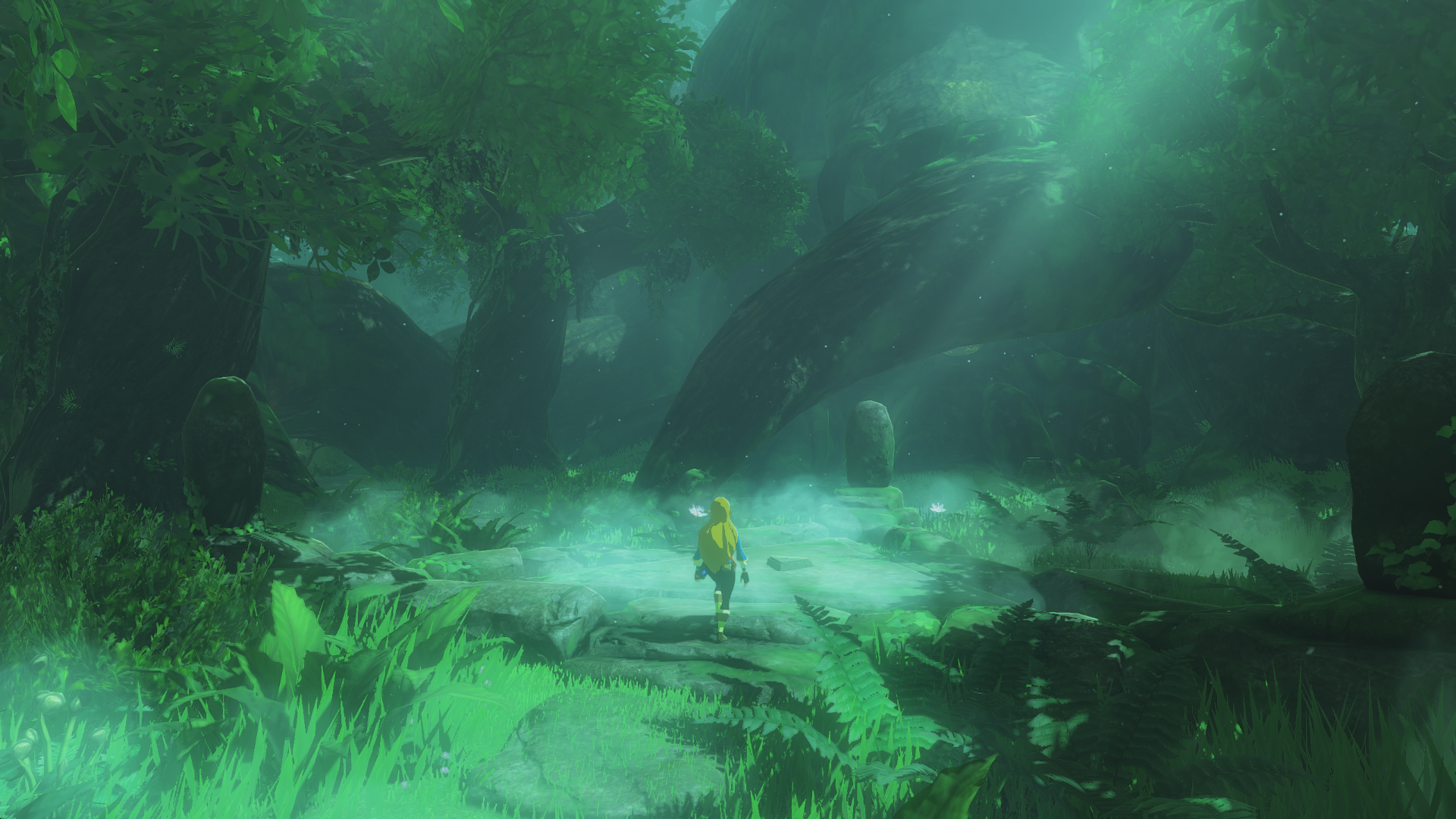

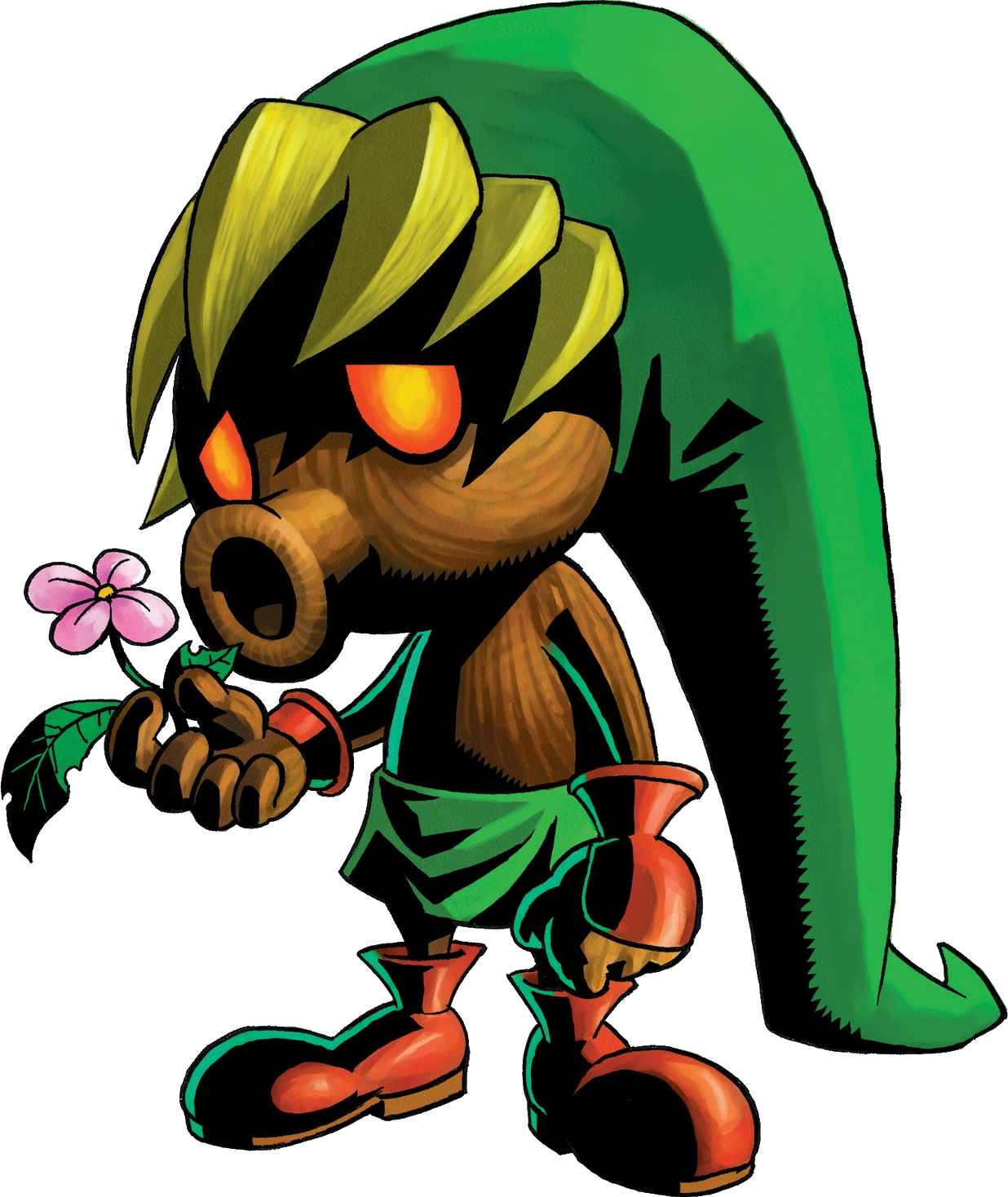
Deku Scrub
Deku Scrubs are small, plant-based creatures that inhabit the forests, swamps, and grasslands of Hyrule. Though little is known of their true origin, legend has it they the original Deku scrubs were Hylian children who wandered into a dark forest and were cursed to live out their remaining days as a twisted, plant-like being. Today, they are a populous and integrated race of Hyrule, and can be found in most towns throughout the land.
Plant People
Deku Scrubs vary in size, from a diminutive 18 inches to nearly 4 feet tall . They are covered in plants and plant-like materials, the appearance of which depends on the environment that the Scrub was born in. Their skin appears wood-like, and their hair and clothing is made from leaves and flowers. All scrubs have bright red eyes and a signature circular mouth that can store nuts, seeds, and other small objects. When in danger, a scrub can use their mouth to spit these objects forcefully and accurately as a means of self defense.
Suspicious Individuals
Deku Scrubs are marked by an inherently rash and paranoid personality. They are always wary of danger and are slow to trust others, especially those of other races. When approached by strangers, Scrubs will attempt to hide in grassy shrubs or flower beds, using their natural camouflage to conceal themselves.
Deku scrubs are quick to jump to conclusions, but slow to abandon them. Once convinced of something, it can be incredibly difficult to change their mind, even if you have an abundance of evidence to back up your viewpoint. This also makes it difficult to negotiate with them, causing them to develop a reputation as savvy merchants - a reputation further reinforced by their greedy, hoarding nature.
Deku tend to be dedicated and focused, sometimes to a fault. Often, a Deku scrub will get a goal in mind, then spend their entire lift attempting to reach it, unable to be discouraged away from it. Woe be to the person who makes a Deku Scrub their sworn enemy, for they will stop at nothing to achieve their revenge.
Deku Society
Deep in the Deku swamp, a collection of Deku Scrubs have established their own monarchy, appointing a Deku King and erecting a Deku Palace. Members of the court, and the royal Deku guards that support them, hole up in their palace and hoard treasures to themselves. They lack the true understanding of how to properly govern, and focus most of their time on hosting lavish feasts, putting on performances, or judging criminals that wander into their territory. Those who do visit their court are expected to treat them with the proper respect owed to royalty.
Deku Scrubs rarely raise their offspring, often leaving them to learn and grow on their own. Those outside the palace walls do not live with nearly as much structure. Some may band together for protection, forming small villages where they live and trade with each other. Others act as bandits that ambush travelers who wander into the woods.
Some ambitious Deku Scrubs choose to leave their homes in search of their own fortune, be it through adventure or entrepreneurial endeavors. Once gone, they retain little nostalgia for their old home and usually embrace their new lives in the greater land of Hyrule.
Treasure and Tall Tales
Because of their active imaginations, legends in Deku folklore often get stretched to absurd proportions, with each retelling becoming more ridiculous than the last. Deku Scrubs, children and adults alike, cling to every word of the legend as truth. Many Deku Scrub adventurer’s set out into the world in hopes of reliving such tales, while others recall the promises of treasure and hoards of rupees that supposedly awaits adventurers brave enough to seek them out.
Deku Scrub Names
Deku scrubs are not normally named at birth. They usually only take on a name when it becomes necessary, often choosing two-syllable names that sound similar to “Deku, such as “Dekki” or “Deppi” If a scrub can be identified by their profession or role, they will often simply use that as their name. Examples include “Deku King” or “Deku Butler”.
Deku Scrub Traits
As a Deku Scrub, your plantlike nature grants you an assortment of abilities.
Age. Deku Scrubs mature quite quickly, and are considered to reach adulthood after only a couple years. They can live to be about 70.
Size. Deku scrubs come in varying sizes and shapes, from as short as one foot to as tall as a human. Your size is small.
Speed. Your base walking speed is 30 feet
Plant. Your creature type is plant, rather than humanoid.
Darkvision. Accustomed to hiding in dark tunnels and dense foliage, you have superior vision in dark and dim conditions. You can see in dim light within 60 feet of you as if it were bright light, and in darkness as if it were dim light. You can’t discern color in darkness, only shades of gray.
Seed Spitter. Your mouth functions as a simple ranged weapon, able to shoot nuts, small rocks, and other similar pieces of ammunition. It has the same statistics as as sling.
Water Hop. Your light body allows you to skip short distances across the water. If you start your turn on dry land, you can move across liquids on your turn without falling during the move.
Rapid Camouflage. You can hide as a bonus action. Additionally, you can attempt to hide even when your are only lightly obscured by foliage.
Paranoia. As an action, you may heighten your sense of danger, preparing for battle at a moment's notice. Once during the next hour, you may add 2d6 to your initiative roll. Once you use this feature, you can't use it again until you finish a long rest.
Languages. You can speak, read, and write Deku and Common.
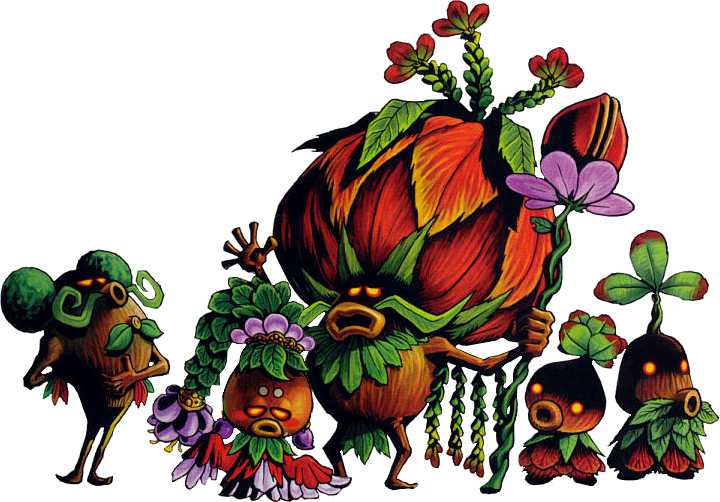


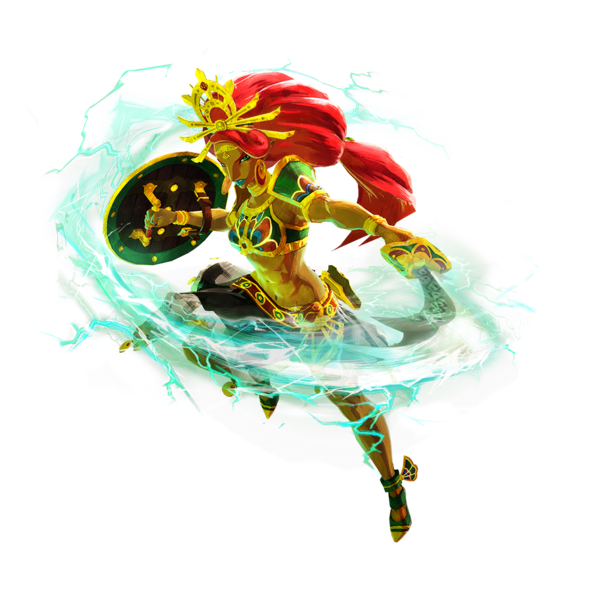
Gerudo
The gerudo are a proud race of female warriors that thrive in the deserts at the edge of Hyrule. At times, they have been staunch allies of the Hyrulian people, but the history between the two has been filled with tension and strife. Gerudo are born almost exclusively female, and have rigid rules about allowing men into their midst. Once every 100 years, a male Gerudo is born into the tribe. His birth is treated as a momentous occasion, and it is believed that he will play an important role in the tribe’s future in years to come.
Brawn and Beauty
Gerudo resemble humans in their anatomy, but tower over them at an average of 8 feet tall . Their muscles are powerful and toned, and their athletic prowess on land is unmatched. Their skin has been darkened by generations of living in the scorching desert sun. Traditionally, they wear colorful, lightweight fabrics that allow their skin to breath in the heat. They accent their look with golden jewelry and brightly colored gemstones, which tend to shimmer in the desert sun. With vibrant red hair and a commanding personality, Gerudo have a way of capturing the attention of the room.
Proud Warriors
Loyal and dedicated, a Gerudo’s number one priority is the safety and prosperity of her tribe. As such, they are frequently found training, hunting, or working within the walls of the city. Most gerudo are in peak physical condition, even into the later years in life, and would gladly give their lives to ensure their tribe’s future.
Gerudo are very proud, and tend to be hard on themselves when faced with failure. They believe in taking personal responsibility, and it is considered the ultimate shame to attempt to pass blame onto someone else. A failed hunting party or a defeated batalion is an especially gloomy sight, as each member puts the blame squarely upon themselves.
Gerudo have a commanding presence, and aren’t shy about expressing their desires. Outside their city walls, they care much less about following the laws and
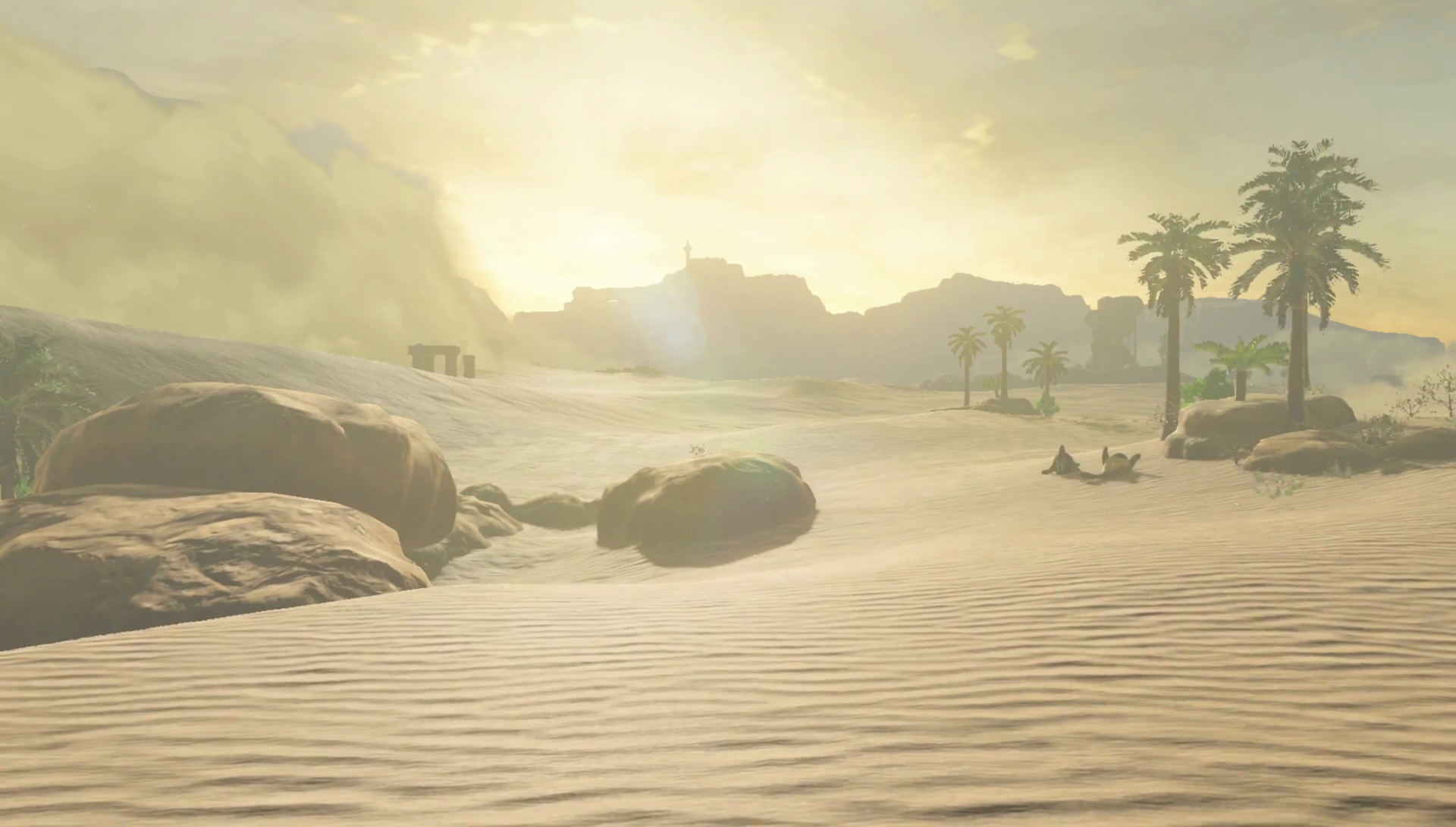
Gerudo Society
Gerudo societies have many strict laws that govern all residents and visitors, but perhaps the most notable law is that men are not allowed within the city walls. Even the King of Hyrule is denied entry. Other races send female diplomats to the Gerudo for negotiations and treaties. Gerudo operate outposts near their cities which are less restrictive and allow men to come and go as they please, allowing for easier trade and opportunities for companionship.
The Gerudo maintain a fierce military force composed of powerful warriors and wise sages. They’ve harnessed the power of the dry desert storms, gaining the ability to channel lightning into their weaponry to enhance their destructive capabilities. While they originally stood behind Ganon in the Great War, they switched sides partway through and were critical for turning the tide in Hyrule’s favor.
After serving the tribe for a number of years, Adult Gerudo are freed from all responsibilities and allowed to leave their city and live a life of their own. It is then they focus on fulfilling personal ambitions, exploring the land of Hyrule to their heart’s content. Gerudo are known for stirring up trouble in other parts of Hyrule. When one wanders into town, almost everyone takes notice and keeps a close eye on her.
When a Gerudo has had her fill of adventure and is ready to settle back down again, she hunts for a suitable male with which to conceive a child. Once pregnant, she will return to her city to birth and raise her daughter, and helps to guide the new generations of Gerudo.
Their Time in the Sun
An adventuring Gerudo is a woman filled with ambition and passion, letting loose from the restrictive laws that have governed her life thus far. They are bold and tend to seek out adventure at every turn, often prioritizing themselves over the safety of their party members. Despite this, a Gerudo almost always returns home once her adventuring days are behind her.
Gerudo Names
Gerudo women have traditional names derived from words in the Gerudo language. They tend to have two or three syllables, and usually end in a vowel. Gerudo take no last names.
Examples: Naboora, Urbosa, Riju, Pasha, Anche, Tali, Spera
Gerudo Males Gerudo males are extremely rare, born only once every 100 years. Their tend to have a huge impact on the world and are important historical figures. If you wish to play as one, consult your DM first. It may be difficult to do so without greatly impacting the narrative of the world.
Gerudo Traits
Gerudo share the following traits and abilities.
Age. Gerudo reach adulthood at the same time as humans, but tend to age more slowly after that. They live to be 120.
Size. Gerudo women stand tall at an average of 7-9 feet, and have Athletic builds that support their frame. Gerudo men are slightly taller. Your size is medium.
Speed. Your base walking speed is 35 feet
Desert Weapon Training. You are proficient with Scimitars, Glaives, Spears, and Shortbows.
Imposing Presence. You have proficiency in Intimidation and Persuasion.
Fury of the Sands When you damage a creature with an attack or a spell, you can cause the attack or spell to deal extra damage to the creature. The extra damage equals your proficiency bonus plus your level. Once you use this trait, you can't use it again until you finish a short or long rest.
Desert Born. You are acclimated to extreme heat, as described in Chapter 5 of the DMG. Additionally, you are unaffected by difficult terrain caused by sand or earth.
Gerudo Endurance. You have advantage on saving throws against exhaustion.
Languages. You can speak, read, and write Gerudo and Common.
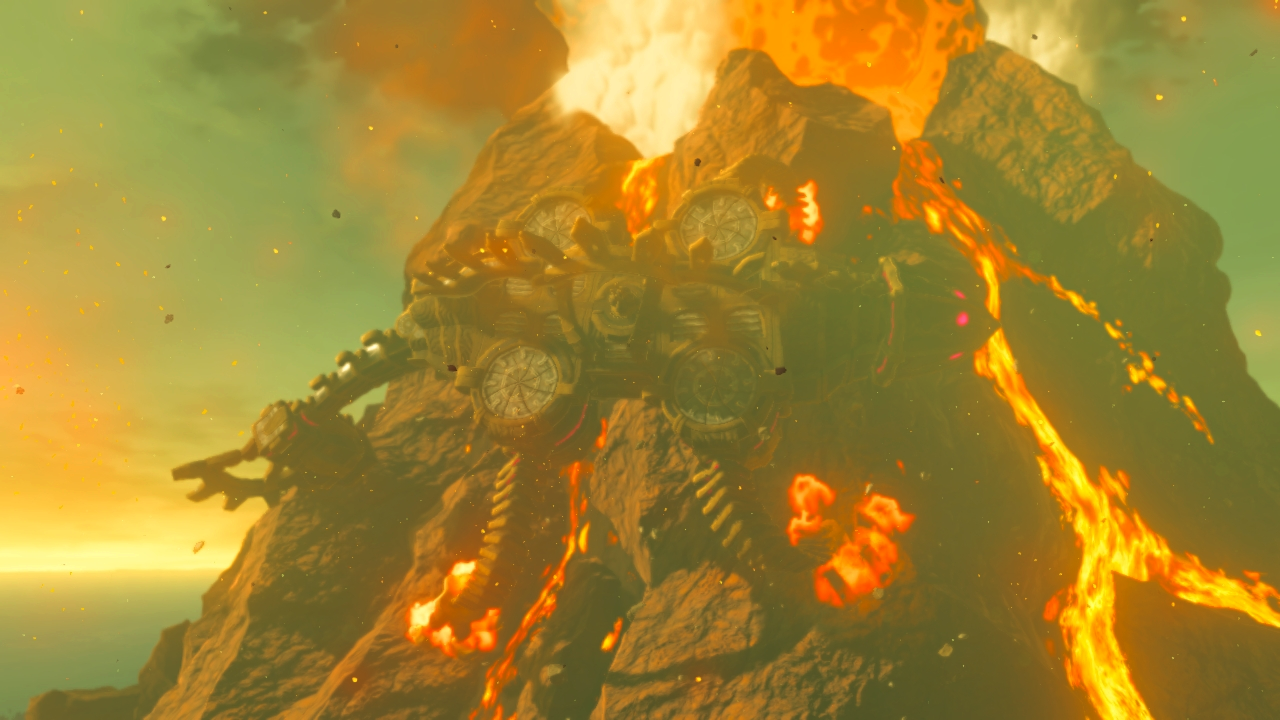

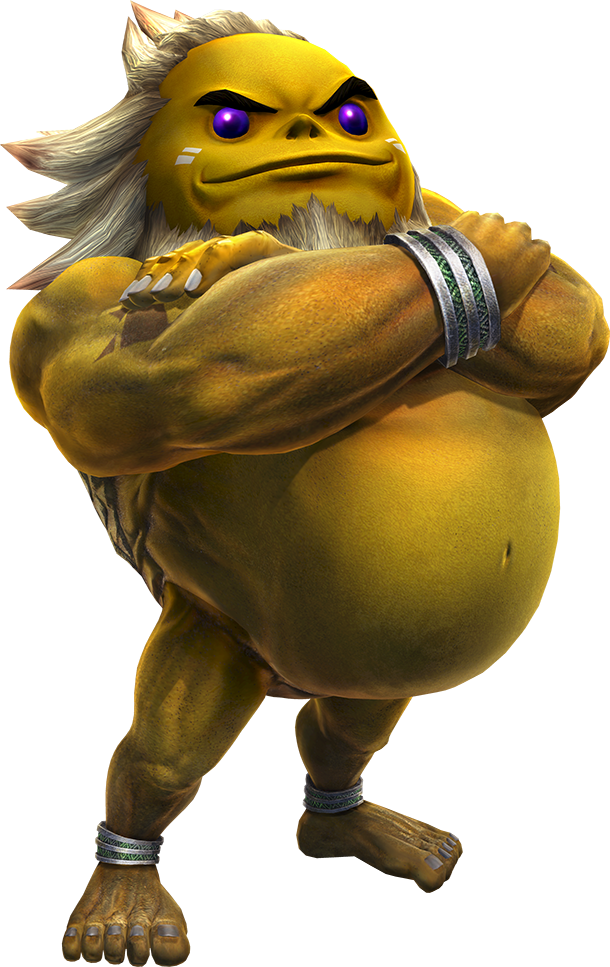
Goron
Gorons are a hulking, rocklike people that dwell in the mountain ranges of Hyrule. They have long held close ties with the Hylian royal family. They have the capability to thrive in any environment, and in times of crisis, adapting to the land around them and enduring any hardships. To be called ‘Brother’ by the Goron is to have a powerful ally on your side.
Rock People
Gorons have round, durable bodies that greatly resemble boulders. They have a hide or ridged stones on their backside, and usually have a light brown skin tone that matches the stone environment around them. They have small eyes and noticeable lips that conceal unaligned, square teeth, capable of biting through stone. When threatened, Gorons can also curl themselves into a ball shape and roll like a boulder, ramming into enemies with immense force.
Despite their preference to use male pronouns, Goron do not have a sex, and are therefore allowed into Gerudo cities.
Strong Bodies, Strong Hearts
Gorons possess immense strength which many are proud of, and many groups of Gorons like to hold competitions that test each other's physical strength. Sumo Wrestling and Boulder racing are two such examples. These boisterous events keep Gorons in high spirits and build camaraderie among the clan.
Gorons are loyal, loving folk who would go to any lengths to help a friend in need. They never forget the kindness of a stranger, and have built powerful bonds with members of all races. They love nothing more than to enjoy a hearty meal and a good laugh, and tend to stay positive even in dire circumstances.
Tribal Brothers
Groups of Gorons often live in close-knit communities within their home mountains, often led by an elder leader called a chief. Those who become chiefs are both powerful and wise, uniting their people through respect and trust, rather than by force. Gorons tend to live in relative isolation but will regularly trade with Hyruleans and other friendly races.
Gorons thrive on a diet of rocks and minerals they usually mine themselves. They can be quite selective about the quality of their food. As a predominantly mining culture, Gorons have also taken blacksmithing, stonemasonry, and metalworking. Their creations, while aesthetically crude, are extremely reliable. Because their bulky bodies make it tough to wear traditional armor, Goron Warriors are often found wearing custom Goron Made armors crafted by their own people.
Gorons are very close and respectful to others of their own kind, and often refer to each other as "brothers". Though the Gorons are a friendly race, they can also be slow to trust outsiders, and may come off as cautious or even aggressive depending on the situation. However, if an outsider is able to prove their worth (usually in a test of strength, skill, or courage), the Goron tribe will accept them as their own and refer to them as their Brother.
Slow Rolling
It takes a lot to get a Goron to leave his mountain, as most are content to live their lives among delicious minerals and hearty companionship. When pressed to help someone in need, however, a Goron can be relied on to roll into battle. Thus, Goron adventurers usually have specific motives for tackling the dangerous problems in Hyrule, such as protecting loved ones or repaying a debt.
Goron Names
Goron names are fairly simple, but their names vary a lot in length. Most names sound guttural and reflect their rocky nature though, but there are a few exceptions. All Gorons are referred to as 'Brother', and their names are mostly masucline sounding by nature. Some Gorons receive nicknames based upon their traits, such as the giant Goron smith known as Biggoron.
Birth Names: Nilak, Rumeglag, Darunia, Mogo, Notokdag, Goludro, Kabegran, Relerbo, Gokmuglogro, Danumo, Tamog
Goron Traits
All Gorons share the following traits.
Age. Gorons reach adulthood in 10-15 years, but can live to be well over 100.
Size. Gorons are bulky, towering creatures of various sizes. They tend to stand around 8 feet tall, though it is possible for some Gorons to grow as tall as a mountaintop. Your size is medium.
Speed. Your base walking speed is 30 feet
Darkvision. Accustomed to dimly lit caverns and mountain homes, you have superior vision in dark and dim conditions. You can see in dim light within 60 feet of you as if it were bright light, and in darkness as if it were dim light. You can’t discern color in darkness, only shades of gray.
Volcanic Resistance. You have resistance to fire damage.
Stone Body. Your craggy body is ill-suited to wearing normal armor. Your rocky skin provides ample protection, however; it gives you a base AC of 15. (Dexterity does not increase this value). Goron are able to wear specially crafted Goron Armor to increase this value. You gain no benefit from wearing other kinds of armor, but if you are using a shield, you can apply the shield’s bonus as normal.
Powerful Build. You count as one size larger when determining your carrying capacity and the weight you can push, drag, or lift.
Rolling Boulder. When you take the Dash action, attacks against you are made at disadvanage until the end of your turn. Immediately after you use the Dash action on your turn and move at least 20 feet straight towards a creature, you can make an unarmed strike against it as a bonus action. This attack deals bludgeoning damage equal to 1d8 + your Strength modifier instead of the regular bludgeoning damage of an unarmed strike. If the creature is Large or smaller, it is knocked prone.
Languages. You can speak, read, and write Goro and Common.

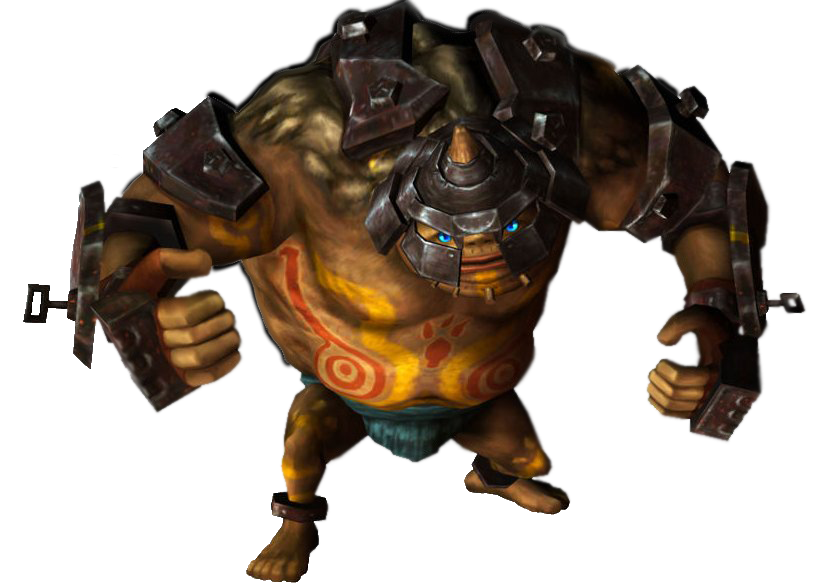

Goron Armor A goron is able to increase their natural armor by wearing specially made Goron armor. Only Gorons can equip this armor, and they must have proficiency in the armor type to gain its benefits.
If a Goron character would normally have Chain mail as part of their starting equipment, they can elect to start with Goron Armguards, instead.
A more detailed description of each armor piece is found in Chapter 4 (Equipment).
Armor Armor Type AC Cost Goron Armguard Light 16 80 gp Goron Pauldron Medium 17 500 gp Goron Plating Heavy 18 1200 gp
Hylian
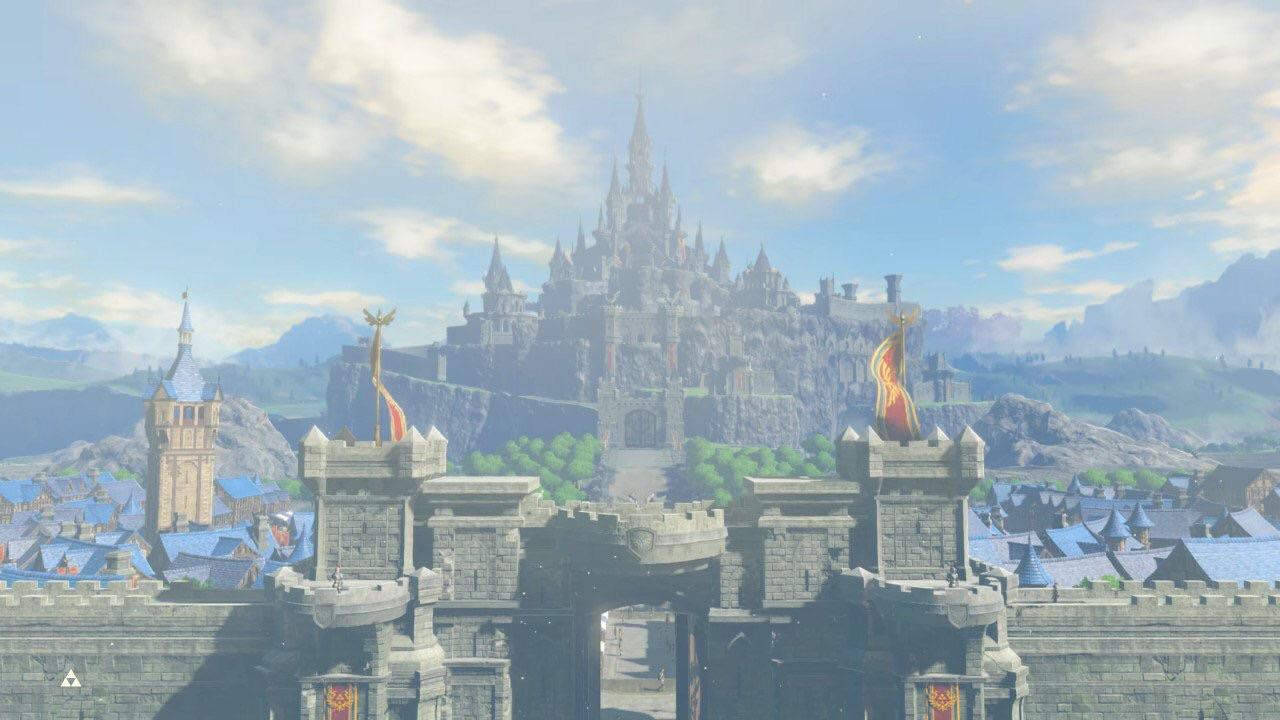

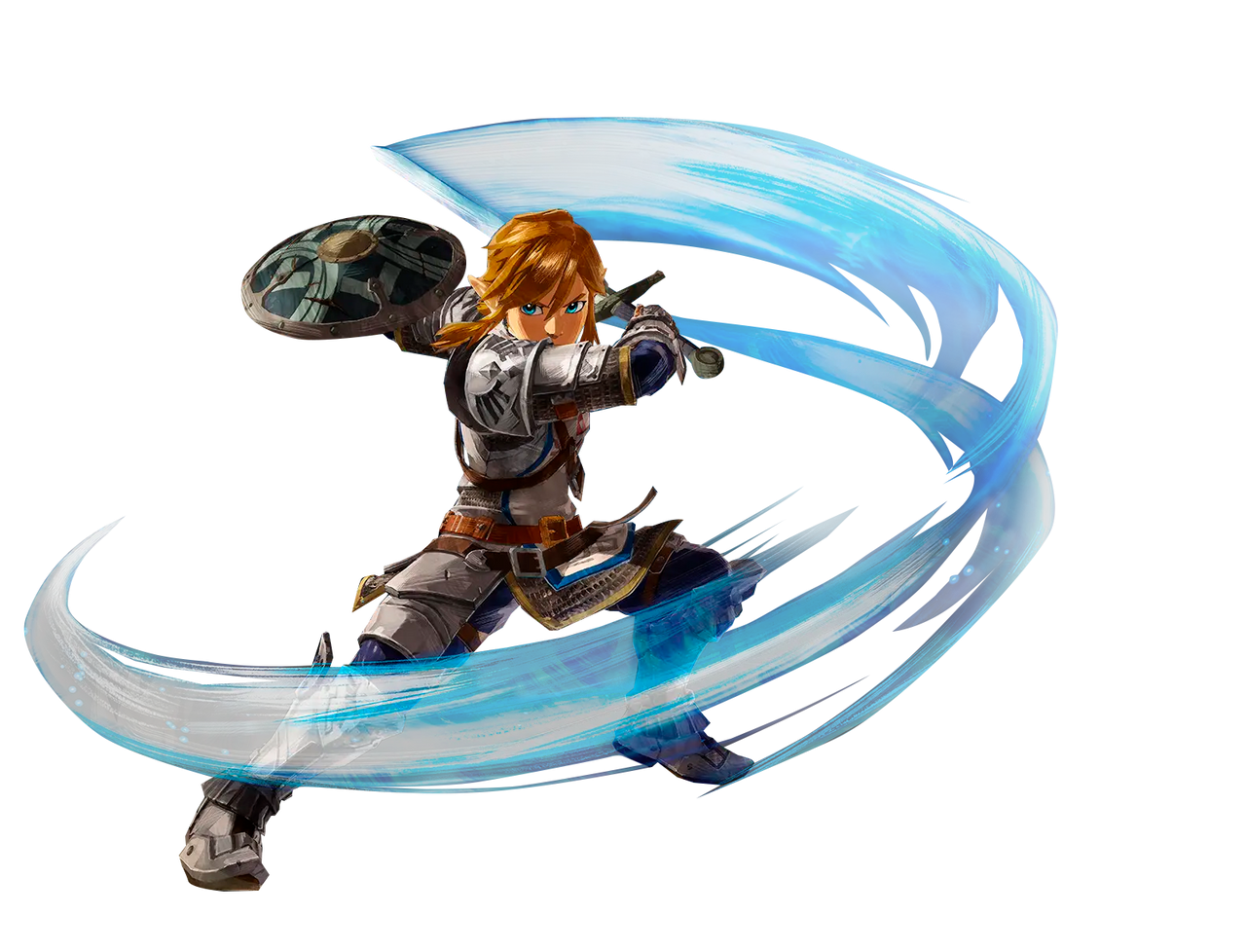
Known as the Chosen of the Goddess Hylia, Hylians originated from Skyloft before descending to the ground and establishing the kingdom of Hyrule. They are said to carry the blood of the Goddess within them, and all have the potential for great magical power. Hylians are the primary inhabitants of the Hyrule, and can be found in most towns and cities.
Messengers of the Goddess
Hylian greatly resemble humans from other lands, with one notable exception: they have distinguished, pointed ears. It is said that these ears help them to hear messages from the Goddess above. While Hylians have a variety of skin tones and hair colors, the Royal Family tends to have golden hair. It is said that their blood is rich with Hylia’s power, and that they are most capable at drawing upon that power in times of great need.
A Varied People
Hylians have spread out to the corners of the realm and integrated themselves with many different cultures and backgrounds. As a result, they have very little commonality in their personalities, quirks, and tendencies. The one thing they do share is their connection to Hylia. As such, Hylians are more prone than other races to believe in destiny, and will often look for signs from the heavens when they aren’t sure what steps they should take next. Other races feel somewhat agitated at such behavior, as it can sometimes come off as quite conceited.
Keepers of the Realm
Hyrule is ruled by the Hylian Royal family, which has kept watch over the people and the land since the kingdom’s inception. There have been many kings and queens over the years, some better than others. In times of crisis, however, the land turns to Hyrule Castle for guidance. Two figures of destiny are reborn again and again as Hylians: The princess Zelda and the Hero Link. Together, their incarnations have fended off countless calamities that have threatened the land.
In times of lesser strife, Hylians aim to be the bridge between the other races in the land. They have strong ties to the leaders of each of the other races, and do their best to ensure lasting alliances and peaceful trade routes. While Hylians are somewhat weaker in hand to hand combat, their large numbers ensure that they are capable of enforcing the law of the land.
A Destined Path
Many hylians jump at the chance of adventure, as they see it as a chance to fill their calling as a Chosen of the Goddess. They tend to revel in glory and aim to be heroes of the realm. Others reject this calling and take up a life of crime in protest, believing that only they should have control over their own fate. Either way, their bloodline provides the catalyst for adventure.
Hylian Names
Hylians have names derived from many different cultures. It is not uncommon for Hylian parents to name their children after heroes from legends, in the hopes that one day the child will live up to their name.
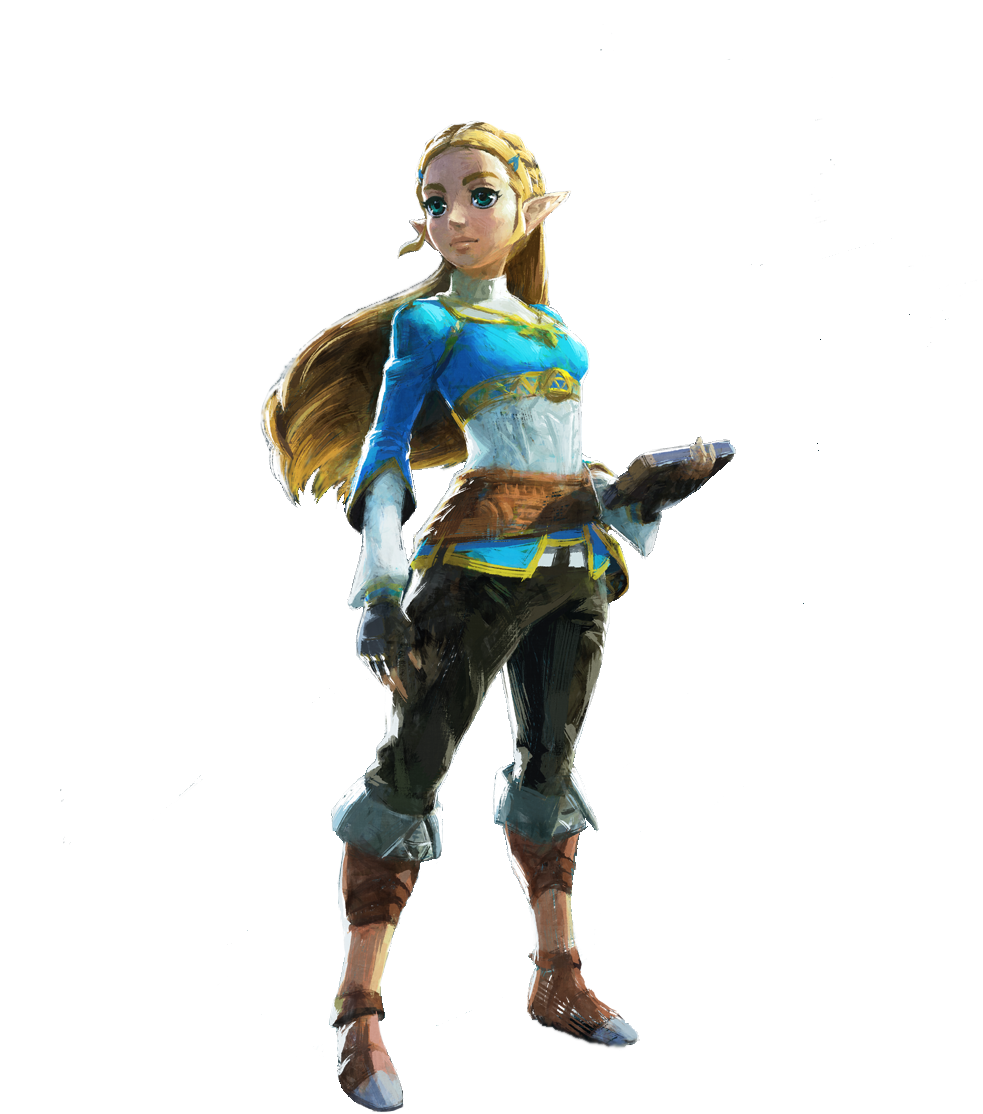

Hylian Traits
As Hylia's chosen people, you are blessed with a number of traits.
Age. Hylians mature and age at the same rate as humans, reaching adulthood in their late teens and living less than a century.
Size. Hylians match typical human builds, from barely 5 feet tall to over 6 feet tall. Your size is medium.
Speed. Your base walking speed is 30 feet
Skill Versatility. You gain proficiency in two skills of your choice.
Divine Blessing. The divine blood in you embodies one virtue above all others. Choose a blessing below:
Power: You have advantage on saving throws and ability checks against being grappled or restrained.
Wisdom: You have advantage on saving throws against
being charmed.
Courage: You have advantage on saving throws against
being frightened.
Touch of Fate Whenever you make an attack roll, ability check, or saving throw, you may roll an additional d20. You can use this ability after the original roll, but before the outcome is revealed. You choose which of the d20s is used for the attack roll, ability check, or saving throw. Once you use this feature, you can't use it again until you finish a long rest.
Languages. You can read, speak, and write Common, Hylian, and one extra language of your choice.
Kokiri
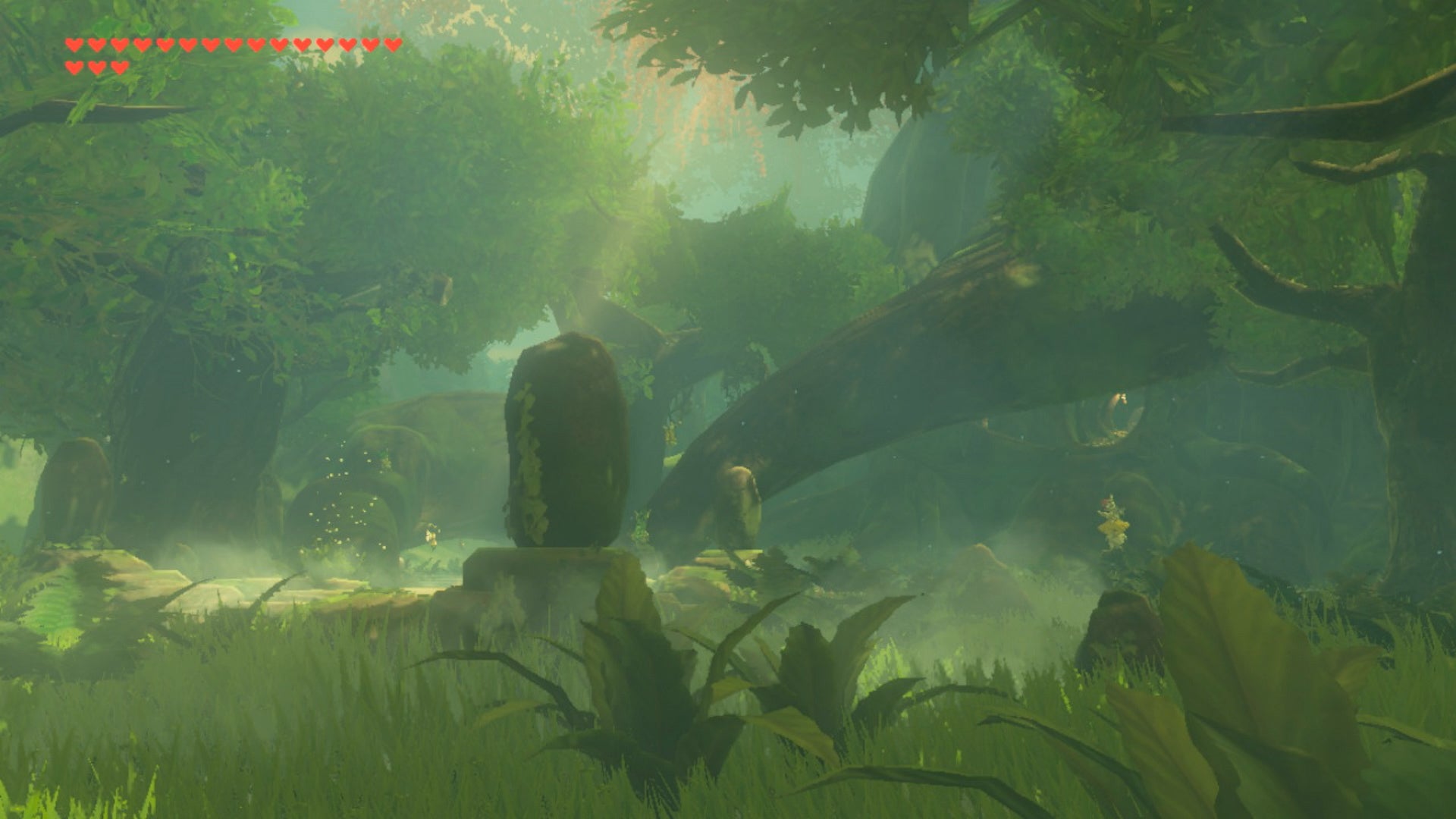


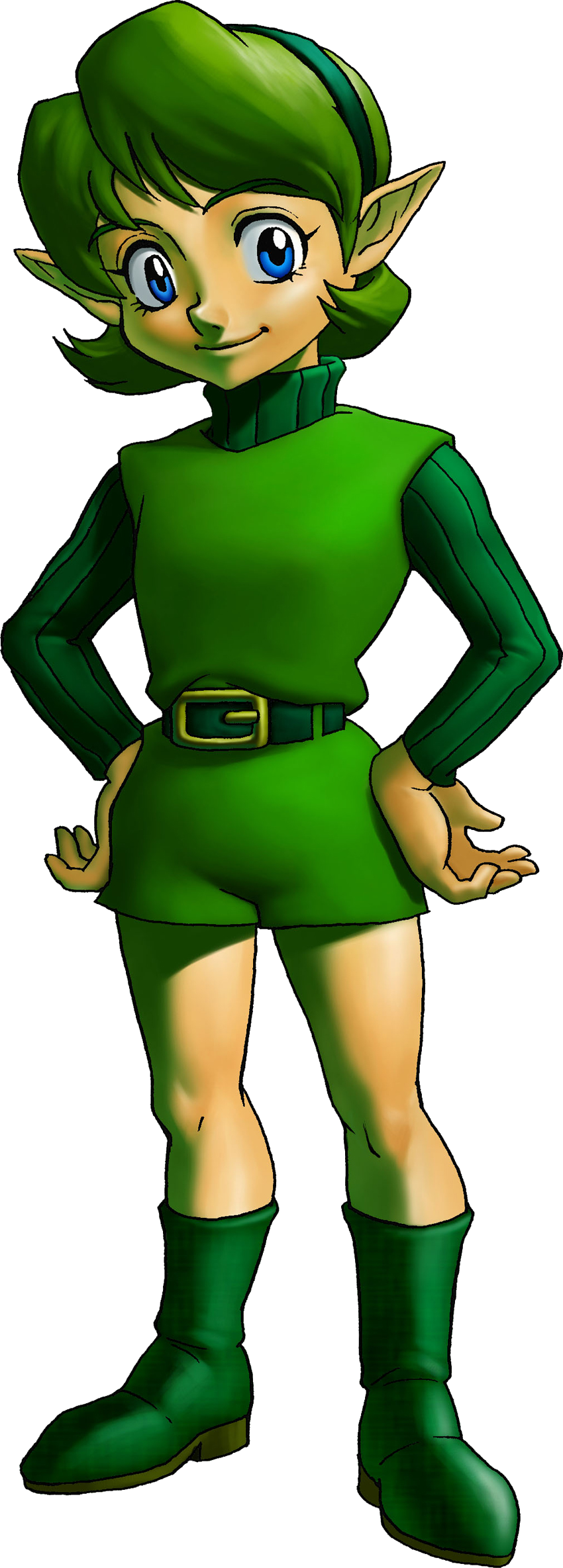
Known as Children of the Forest, Kokiri are an innocent and playful race that dwells deep within Hyrule’s forests. Originally sheltered and protected by the powers of the Great Deku Tree, they now have begun to venture out into the world at large, bringing laughter and mischief to all they meet.
Forest Folk
No matter how old they get, Kokiri always look like Hylian children, While they do learn and grow wiser as the years pass, they keep their childlike bodies and playful nature. They are usually garbed in simple, green tunics, with boys wearing floppy green hats and girls donning green headbands. They otherwise avoid jewelry and other accessories, preferring to keep a natural appearance. Kokiri are accompanied by their own personal fairies, who they consider to be their closest friend and companion.
Eternal Children
Kokiri are whimsical and playful, always looking to bring out the fun in any situation. They are incredibly curious and love meeting strangers, but are also quite shy and cautious of letting people get too close to their village. When a new face wanders into the forests, the Kokiri will hide in the trees and play tricks on the stranger in hopes of learning more about them. If they like the stranger, they may stick around and hope to befriend them. Otherwise, their mischievous tricks may turn into nasty and sometimes dangerous pranks.
While they don’t grow taller, Kokiri do grow wiser with age. Experienced Kokiri are very skilled at sensing the intentions of other creatures. While they still speak with a childlike innocence, a Kokiri’s advice can often be deceptively insightful and is always worth listening to. Kokiri also share their every thought with their fairy companion, learning and growing together.
Kokiri always try to maintain an optimistic demeanor, but they tend to grow suddenly quiet and cold when faced with grave news. It is said that the mood of the Kokiri controls the mood of the room. People you can’t help but smile when in the presence of a laughing Kokiri, but even the most cheerful person feels glum when in the presence of a sombre Kokiri.
Kokiri Society
As spirits of the forest, Kokiri are not born in the traditional sense, but rather willed into being by the forest itself. It is said that the number of Kokiri in the world is proportional to the number of trees, and that heavy industrialization could threaten to stop their cycle of rebirth.
Kokiri find instant kinship with fellow Kokiri, forming small villages that live symbiotically with nature. Kokiri work small gardens and farms to grow food for themselves, and do not hunt wild creatures for meat. They are capable of defending their village from monsters with rudimentary weapons, and sometimes rely on the forest’s magic to keep bigger threats from ever finding their village in the first place.
If they aren't working or protecting, Kokiri can almost always be found playing games, singing, or practicing musical instruments.
Kokiri were originally bound to the Deku Forest by the magic of the Great Deku Tree. While he lived on this plane, it was said that Kokiri would never die. After his death, however, The Kokiri’s sudden mortality turned out to be a blessing in disguise. Left with nothing to lose, some Kokiri began to leave the Deku Forest and venture across the planes of Hyrule. Today, Kokiri can be found in almost every forest, big or small, and frequently visit small towns in order to meet new strangers and learn more about the world.
Adventure Awaits
The life of an adventurer suits Kokiri quite well. While they have little need for treasure and glory, Kokiri love experiencing new things and meeting new people, even if it can be a little bit scary sometimes. Together with their fairy and the friends they’ve met along the way, Kokiri rise to meet any challenge that comes their way.
Kokiri Names
Kokiri give themselves short, melodic names that are easy and fun to say.
Male Names: Mido, Fado, Mako, Hollo
Female Names: Saria, Fado,
Kokiri Traits
As a Child of the Forest, you have the following traits.
Age. Kokiri are born as children and retain that childlike even as they grow older. Kokiri live a little less than a centrury, but a Kokiri who lives under the protection of the Great Deku Tree does not age and could be many centuries old.
Size. Kokiri are generally 3 to 4 feet tall. Your size is small.
Speed. Your base walking speed is 25 feet
Fairy Companion. You have a bond with a forest fairy. You may cast the find familiar spell as a ritual without the need for material components. When you cast it in this way, your familiar must take the form of a forest fairy, and its creature type must be fey. If your fairy ever drops to 0 HP and vanishes, you must finish a long rest before using this feature again.
Forest Whisperer. You have the ability to communicate in a limited manner with plants. They can understand the meaning of your words, though you have no special ability to understand them in return. You have advantage on all Charisma checks you make to influence them.
Forest Resilience. You have advantage on all Intelligence, Wisdom, and Charisma saving throws against magic.
Natural Musician. Your have proficiency in one musical instrument of your choice
Languages. You can read, speak, and write Deku and Common.
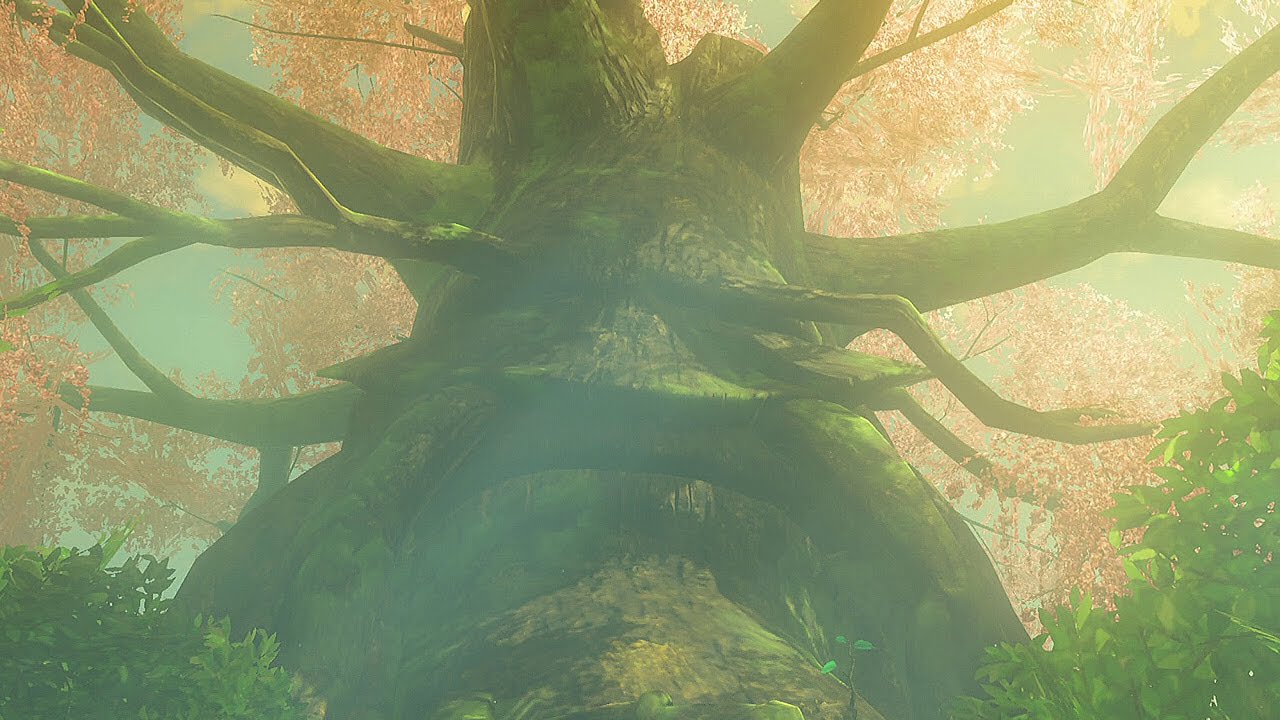
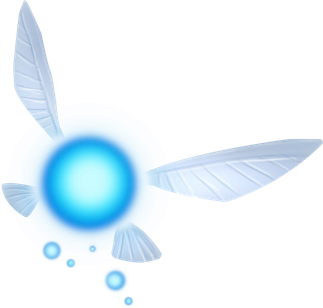
Forest Fairy
Tiny fey, neutral good
- Armor Class 15
- Hit Points 1 (1d4-1)
- Speed 0 ft., fly 40 ft (hover)
STR DEX CON INT WIS CHA 1 (-5) 18 (+4) 8(-1) 17 (+3) 16 (+3) 12 (+1)
- Skills Investigation +5, Perception +5
- Senses darkvision 60 ft., passive Perception 16
- Languages Deku, Common
- Challenge 0 (10 XP)
Avoidance. If the fairy is subjected to an effect that allows it to make a saving throw to take only half damage, it instead takes no damage if it succeeds on the saving throw, and only half damage if it fails.
Illumination. The fairy sheds bright light in a 5-foot radius and dim light for an additional 5 feet.
Flyby. The fairy doesn't provoke opportunity attacks when it flies out of an enemy's reach.
Actions
Tackle. Melee Weapon Attack: +4 to hit, reach 5 ft., one target. Hit: 1 bludgeoning damage.
Analyze Enemy. Once creature within 5 feet of the fairy must make a DC 13 Charisma saving throw. On failure, the fairy communicates two of the following attributes about the target to their master:
-Damage vulnerabilities
-Damage resistances and immunities
-Condition immunities
-Armor Class
-Best saving throw
-Worst saving throw
-Spellcaster level (if any)
A creature is aware of the fact that it is being analyzed. Once it attempts to analyze a creature (succeed or fail), the fairy cannot analyze it again for 24 hours.
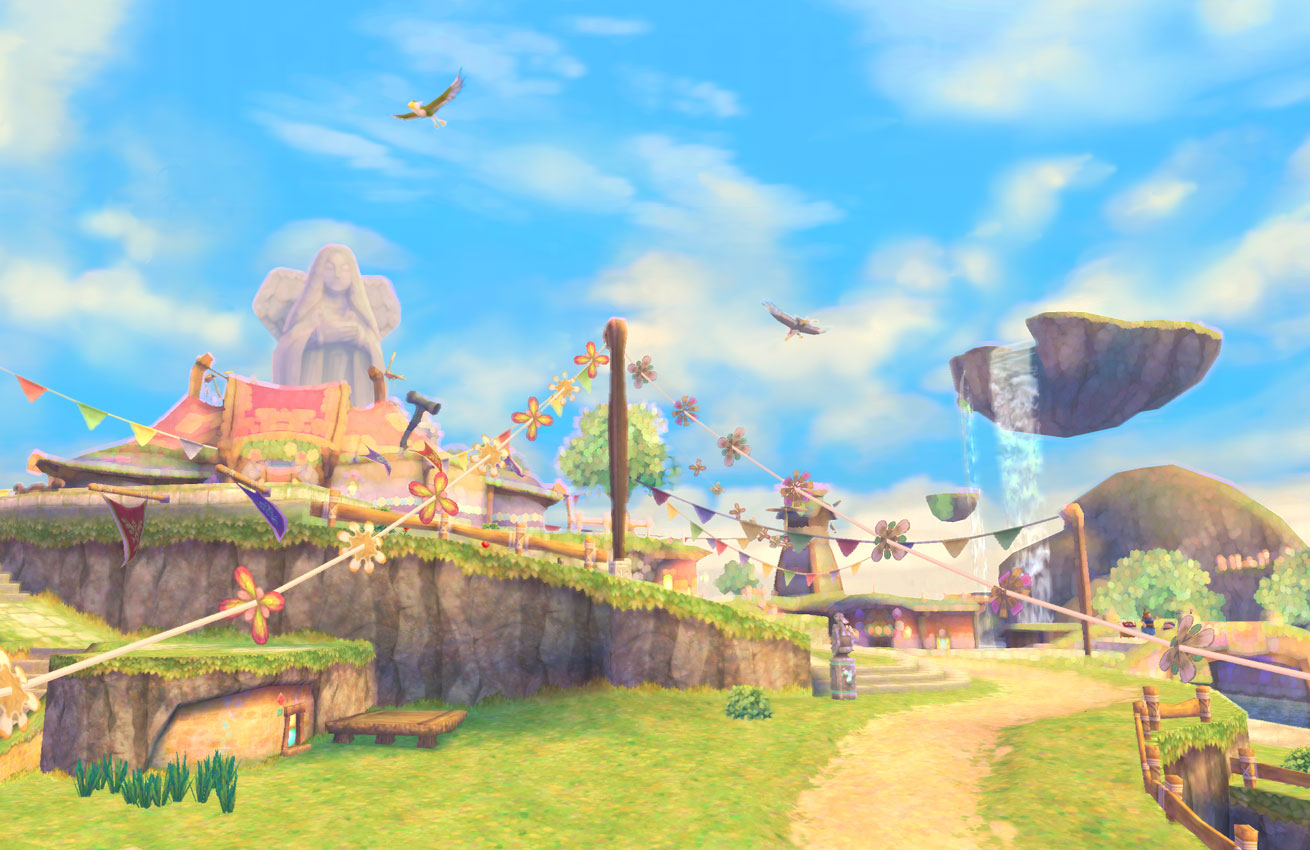

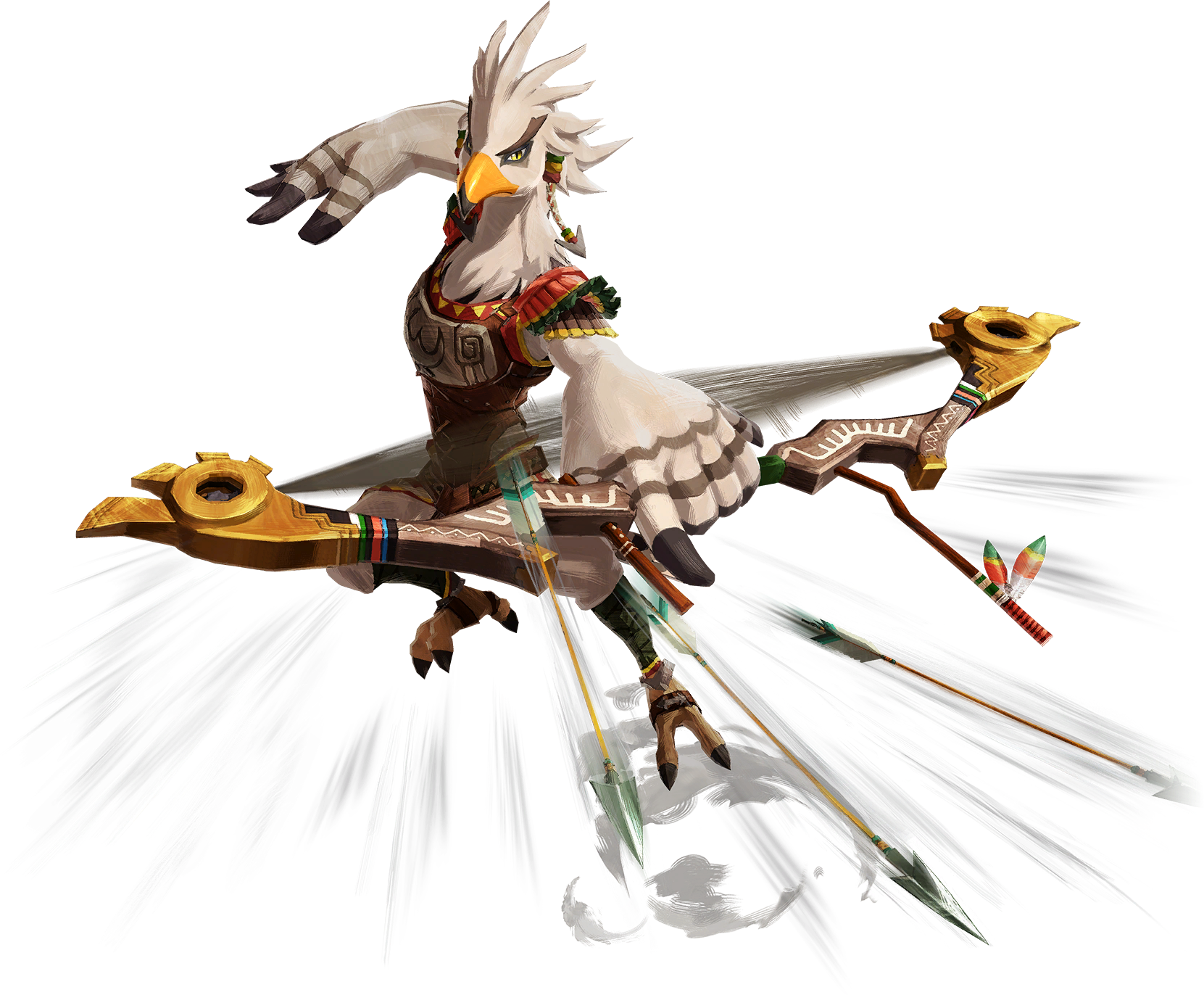
Rito
Rito are a colorful race of birdlike people found in every corner of Hyrule. These nomads travel from town to town, exchanging news and stories with the locals. Their lively spirits and a thirst for adventure bring excitement and exhilaration wherever they roam.
Feathered Fighters
Rito are tall, feathered humanoids with large wings, beaks, and talons. They come in a variety of forms that closely resemble different bird species such as hawks, owls, parrots, and swans. They walk upright on two legs and have dexterous, feathered fingers at the tips of their wings that allow them to wield weapons and operate tools with ease. Their size and frame make them incapable of true flight, but they can still glide through the air with ease. Rito can ascend into the sky by catching or creating strong updrafts, which allows them to soar great distances before being forced to land.
Thrillseekers
Rito are independent, free-spirited individuals that enjoy roaming the fields and hills of Hyrule. If they stay in one place for too long, they grow restless. Always itching for excitement, Rito frequently hunt dangerous prey and have been known to challenge other travelers on the road to one-on-one combat or feats of skill as a way to pass the time. They enjoy meeting new people and make fast friends, knowing that the time they have with strangers is short.
Rito are highly competitive, always trying to outdo other members of their flock. They will endure long hours of training just to gain a slight edge over a rival, and tend to get upset when their efforts go unnoticed. Their competitive nature can lead to spurts of jealousy and condescension, especially when they are outdone by someone who has put in less effort than them. For this reason, many Rito look down upon Hylians, whose favor with the goddess Hylia can seem unearned.
While they travel often and have no issues moving on foot, the Rito prefer to fly whenever possible. A windy day brings a smile to a Rito’s face, and usually signifies that it is time to move on. The thrill of soaring through the sky is unmatched in the eyes of a Rito.
Winged Wanderers
The Rito are a nomadic people that are scattered across Hyrule. They tend to roam as small flocks of 5-15 people, though the occasional lone Rito is not uncommon. Rito are skilled hunters, able to use their exceptional vision and mobility to track and chase down prey. They also make excellent scouts, spotting danger from a great distance and finding places to hide if they feel threatened. They rarely remain in the same location for more than a few days.
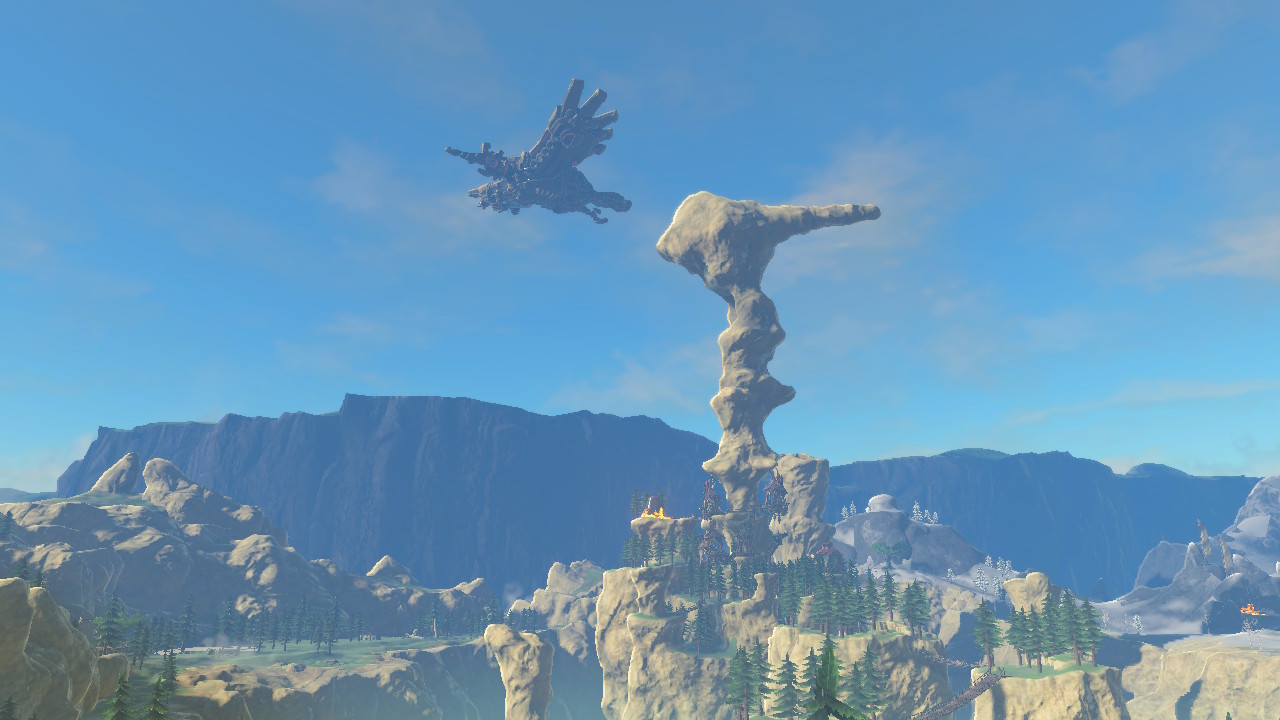
Because of their extensive travel, Rito often brings news from one town to the next, sometimes trading information for favors or supplies. Some Rito hire themselves out as couriers, able to deliver small packages to the opposite corner of Hyrule at great haste. Other Rito act as traveling minstrels, embellishing stories from across the realm and performing for crowds. Because of their services, Rito are welcomed into most towns with open arms.
There are a few established Rito villages near the bases of mountains that act as safe havens for wandering Rito. These villages also are where Rito children are usually raised, giving them a chance to grow and train in a place of relative safety. Rito houses and shops are simple, wooden structures that are integrated naturally among tall trees and rock outcroppings. They provide little shelter against the elements, as a Rito’s thick coat of feathers provides ample protection against the rain and cold. Each village is run by a village chieftain, who tends to be one of the oldest and wisest Rito in the village.
To the Open Skies
For many Rito, adventuring is second nature. It allows them to see new places, meet new people, and revel in the thrill of the moment. Rito frequently take up quests to hunt monsters or seek out missing persons, but are less fond of delving into cramped tombs or dark dungeons. Nevertheless, the glory As their lives are relatively short, Rito aim to experience as much as possible before they become too old to travel and are forced to settle down.
Rito Names
Rito names are short, melodic names, occasionally referencing their avian nature. Female names often end in 'li'.
Male Names: Revali, Kass, Gesane, Komali, Teba, Quill
Female Names: Medli, Amali, Cree, Kaneli, Saki
Rito Traits
You have the following avian traits
Age. Rito mature slightly faster than humans, but only live for about 60-70 years
Size. Rito stand 6-7 feet tall, with long arms and wingspans. Your size is medium.
Speed. Your base walking speed is 30 feet
Sharp Vision. You have proficiency in perception.
Aerial Glide. Your wings allow you to glide gently through the air. While you are falling and your speed is not zero, you can choose to glide. While gliding, you descend at rate of 30 feet per round and you can move up to 3 feet horizontally for every 1 foot you descend. If you land while gliding, you take no falling damage and land on your feet. You cannot glide while wearing heavy armor.
Updraft. As a bonus action while standing on solid ground, you may take the Dash action. When you do, you also gain a flying speed equal to your walking speed until the start of your next turn. You may use this feature a number of times equal to your proficiency bonus, and regain all uses when you finish a long rest.
Down Feathers. You have resistance to cold damage.
Languages. You can read, speak, and write Common and Rito.
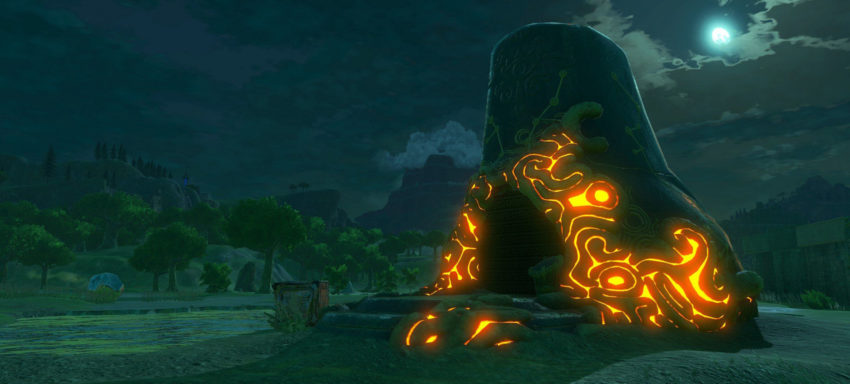

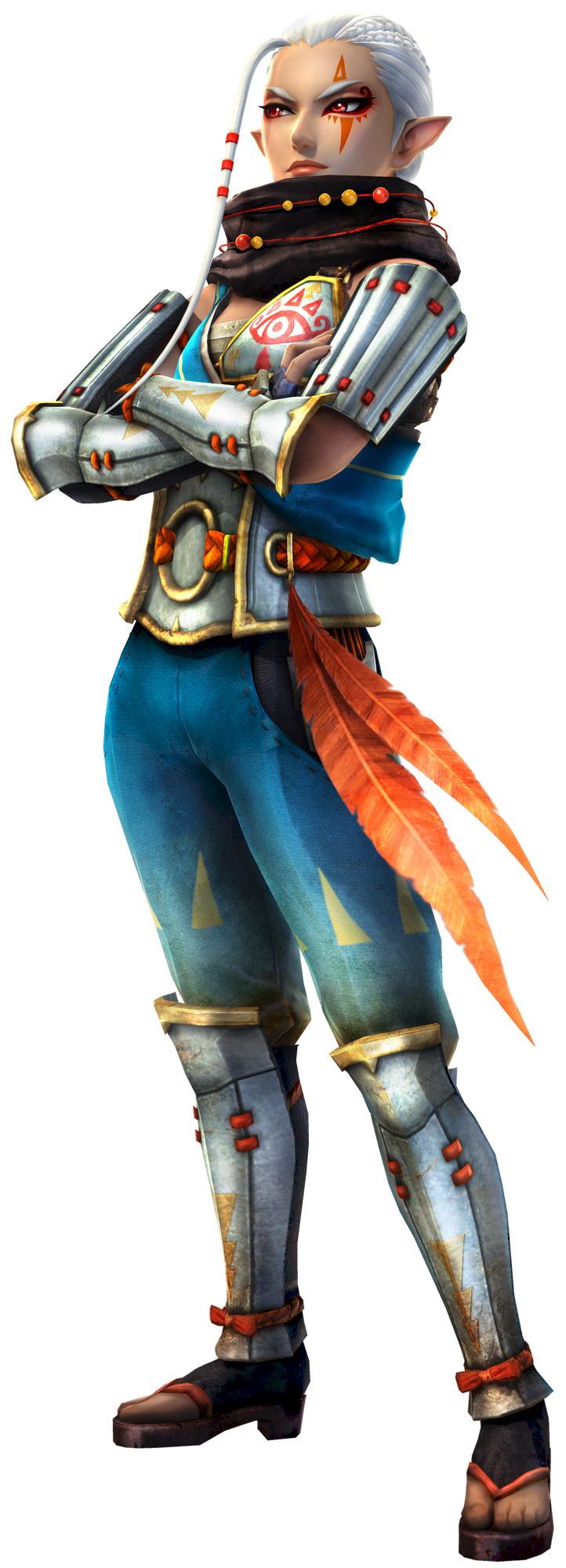
Sheikah
Sheikah, or Shadow Folk, are a mysterious tribe that inhabit the land of Hyrule. They were originally the chosen guardians of Hylia, sent to protect and guide her incarnations in trouble. Their shadowy magic, academic prowess, and refined combat skills are at the service of the Hylian Royal family.
Silent Watchers
Sheikah are very similar in appearance to Hylians, sharing their pointed ears that signify a divine purpose. Shiekan eyes are red, and said to be capable of seeing through deception of any kind. Their lean bodies are built for speed and stealth, and they excel at hand-to-hand combat. Those in service to the Royal Family wear lightweight, form-fitting robes, often covering their faces to obscure their true identity. Shiekans employ a combination of illusion magic and advanced technological capabilities, both of which offer unique tools or abilities that enhance their physical capabilities.
Mind. Body, and Spirit
From a young age, Sheikah are taught that their most sacred duty is to protect and serve the royal family of Hyrule. They devote their whole being to this cause, working more diligently than most races can fathom. Those who cannot meet the high standards required to become guardians of the Royal Family are still given other opportunities to serve, often as scholars or researchers.
Because of the value placed on education, Shiekan are quite inquisitive individuals. Many sheikah choose a subject of study and become experts in their field. Their diligence can sometimes turn into obsession, delving deep into research for days on end. Those who prove capable and trustworthy are given additional instruction in ancient, magical techniques to manipulate shadows.
The grueling training process does end up breaking some Sheikah, who wish to abandon their clan’s sacred duty. In the past, some factions have splintered off to live as they see fit, taking dangerous secrets with them. To help avoid this fate, Sheikah also emphasize a healthy amount of recreation and relaxation to balance out their stressful lives. Travelers will often encounter Sheikah reading beside a tree or playing music as a way to clear their minds.
Spies and Scholars
When Sheikah near adulthood, they are put through the final tests of a grueling training program to see if they are capable of serving as guardians of the Royal Family. Those who succeed will leave their family and friends behind to live at Hyrule Castle, where they join an elite shadow force of trained bodyguards and assassins known as the Shadow Guard.
Very few things escape the watchful eye of a trained Shiekan soldier. They are frequently deployed to troubling areas in the Kingdom to assess the situation, infiltrating criminal organizations and gathering intelligence to send back home. Thanks to a Shiekan’s disguise magic and exceptional stealth, very few people even realize that they are being watched.
Sheikah who don’t join the Shadow Guard are most publicly seen as scholars and engineers. Most modern inventions in Hyrule have come about because of Shiekan tinkering. They will accept students from all races to study under them, understanding that advancing the knowledge of the people will benefit the kingdom as a whole.
For the Kingdom
Sheikah are always willing to put their life on the line for the safety of the Hyrule, frequently accepting dangerous assassination and infiltration missions. Some Sheikah are given leave to become long-term adventurers , but they are expected to stay in contact with their home and often receive secret missions to accomplish on their journey. Rebel Sheikah who have abandoned their clan see adventuring as a way to seize control of their own destiny and chase their dreams.
Sheikah Names
Shiekah names are usually quite similar to Hylian names, but often to include sharp letters like P, K, and T that give them a sharper edge.
Male Shiek, Koba, Robbie, Grante
Female Impa, Purah, Uki, Nika, Pom
Sheikah Traits
Age. Sheikah mature at the same rate as humans, reaching adulthood in their late teens. They live for just under a century, but some shiekah have been able to live much longer through meditation and discipline
Size. Sheikah are roughly the same height as humans, though may have smaller frames. Your size is medium.
Speed. Your base walking speed is 35 feet.
Darkvision. Accustomed to operating at night, you have superior vision in dark and dim conditions. You can see in dim light within 60 feet of you as if it were bright light, and in darkness as if it were dim light. You can’t discern color in darkness, only shades of gray.
Rigorous Study. You have proficiency in your choice of Arcana, History, Nature, or Religion.
Master of Disguise You know the minor illusion cantrip. Once per long rest, you can cast Disguise Self without expending a spell slot. Intelligence is your spellcasting ability for these spells.
Eye of Truth. You have advantage on ability checks and saving throws against enchantment or illusion magic.
Languages. You can read, speak, and write Common, Hylian, and Sheikah.

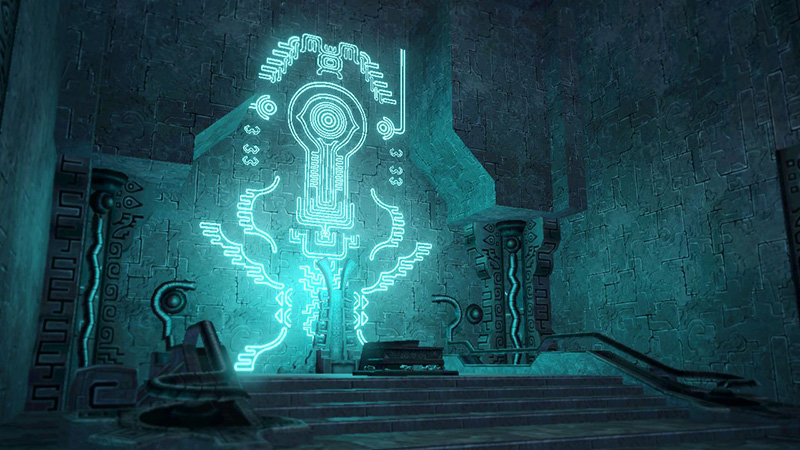

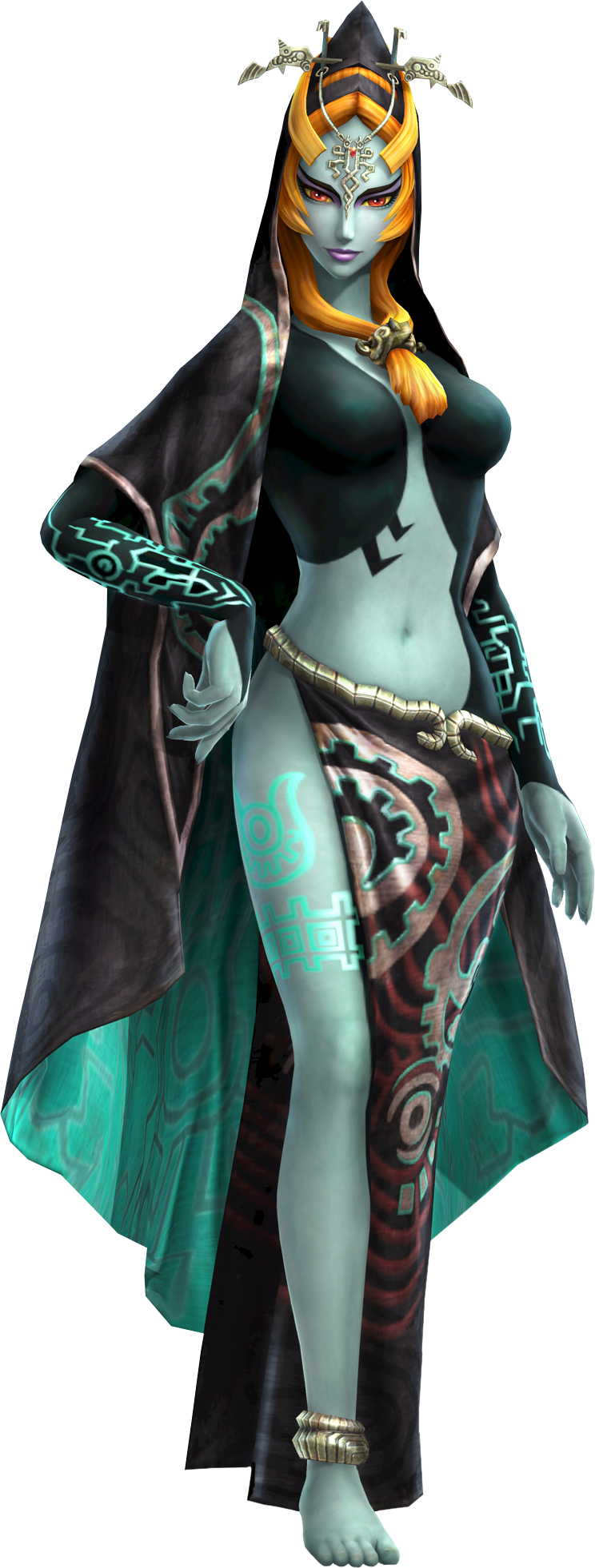
Twili
"The people of our tribe...a tribe that mastered the arts of magic...were locked away in this world like insects in a cage. In the shadows we regressed, so much so that we soon knew neither anger nor hatred...nor even the faintest bloom of desire.
—Zant, Usurper King of the Twili.
The Twili descended from a tribe of sorcerers known as the Interlopers, who attempted to seize control of the Sacred Realm after the creation of the Triforce. Their efforts failed, and the Interlopers were banished to a land known as the Twilight Realm. Over a long period of time, the vastly different environment within the Twilight Realm caused the descendants of the Interlopers to evolve into a unique, gentle-looking race called Twili.
Alien Appearance
Twili have muted, black and white skin tones and vibrant orange hair that almost seems to glow in low light. They tend to have tall, elongated bodies, with slender limbs and necks. Some Twili cover their limbs in eerie, glowing tattoos, which are thought to increase their magical capabilities. Their deep red eyes are reminiscent of Gerudo and Sheikah and it is possible that the original Interlopers were themselves members of one of these tribes. Twili prefer to wear dark, flowing robes, often accented by ornaments and markings that resemble the strange architecture found only in the Twilight Realm. While they leave their faces uncovered at nighttime, they are forced to wear masks and hoods during the daytime to protect themselves from direct sunlight, which is otherwise highly toxic to a Twili.
Eons Apart
A vast cultural chasm separates Twili from the rest of the races of Hyrule, who often find Twili mannerism to be strange and confusing. While Twili are not shy around strangers, their nocturnal nature has earned them a reputation for being rather reclusive. Those who venture out late at night quickly realize how wrong this is, as a Twili's inquisitive nature and strange mannerisms are quick to capture the attention of those around them.
Thanks to the doldrums of the Twilight Realm, Twili emotions have been repressed for thousands of years. They can struggle to read the room and often miss the subtleties of standard social interactions. Their emotions are often difficult to control, which makes them prone to outbursts of intense excitement or rage. Burned deep inside the soul of many Twili are intense feelings of hatred and despair - lingering resentment from their ancestors. In times past, dark forces were able to tap into these emotions and transform Twili into terrifying monsters called Shadow Beasts.
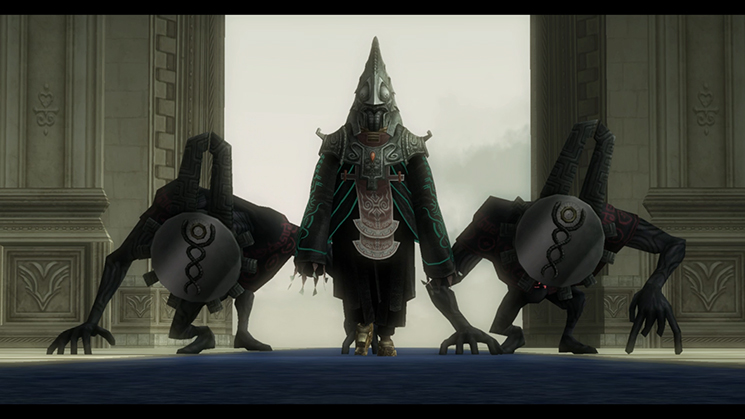

As all Twili are descended from powerful spellcasters, they all possess an inherent knack for magic. They are skilled inventors, and have managed to unlock many secrets of the Twilight Realm and repurpose them for the benefit of their people. Curiosity is a huge driving force of the Twili, which prompts them to investigate anything new that interests them - sometimes with no regard to the privacy of others.
Resettlement into Hyrule
Twili have no town or lands of their own. - at least in Hyrule. Instead, the refugees have integrated themselves into various communities across the realm. While many citizens of Hyrule try to welcome them, the steep cultural barriers can sometimes cause conflict within a community. Some Twili also have chosen to remain in their palaces in the Twilight Realm, remaining uninvolved in the affairs of Hyrule.
The resettlement of Twili brought back many strange and wonderful inventions from the Realm of Darkness. Their most notable contributions have been Twilight portals, which have the ability to transport people between dimensions. Working together with Sheikan scholars, the technology continues to advance by the day, and promises to bring the land of Hyrule into a new, brighter future.
Finding Their Place.
Many Twili adventurers lack a strong motivation for their way of life. They are often overwhelmed by their surroundings, and are simply hoping to learn as much as they can. Some Twili have latched strongly onto specific emotions, such as anger or love, and use this as their driving force.
Twili Traits
Age. Twili reach adulthood in their early twenties. They live for just over a century.
Size. Twili come in many shapes and sizes, ranging from 4 feet all the way to 9 feet tall. Your size is medium.
Speed. Your base walking speed is 30 feet.
Superior Darkvision. Centuries in the Darkened Realm has caused your race to thrive in shadow. You have exceptionally superior vision in dark and dim conditions. You can see in dim light within 120 feet of you as if it were bright light, and in darkness as if it were dim light. You can’t discern color in darkness, only shades of gray.
Sunlight Vulnerability. You have disadvantage on attack rolls and on Wisdom (Perception) checks that rely on sight when you, the target of your attack, or whatever you are trying to perceive is in direct sunlight. Additionally, you take 1d8 radiant damage if you start your turn in direct sunlight, unless your skin and face are fully covered by clothes and a mask.
Dark Resistance. You have resistance to necrotic damage.
Shadow Magic. You know the thaumaturgy cantrip. When you reach 3rd level, you can cast the darkness spell once with this trait and regain the ability to do so when you finish a long rest. Charisma is your spellcasting ability for these spells.
Twili Teleportation. When standing in dim light or darkness, you can spend your bonus action to magically teleport up to 30 feet to an unoccupied space you can see that is also in dim light or darkness. Once you use this trait, you can’t use it again until you finish a long rest.
Languages. You can read, speak, and write Common and Twili.
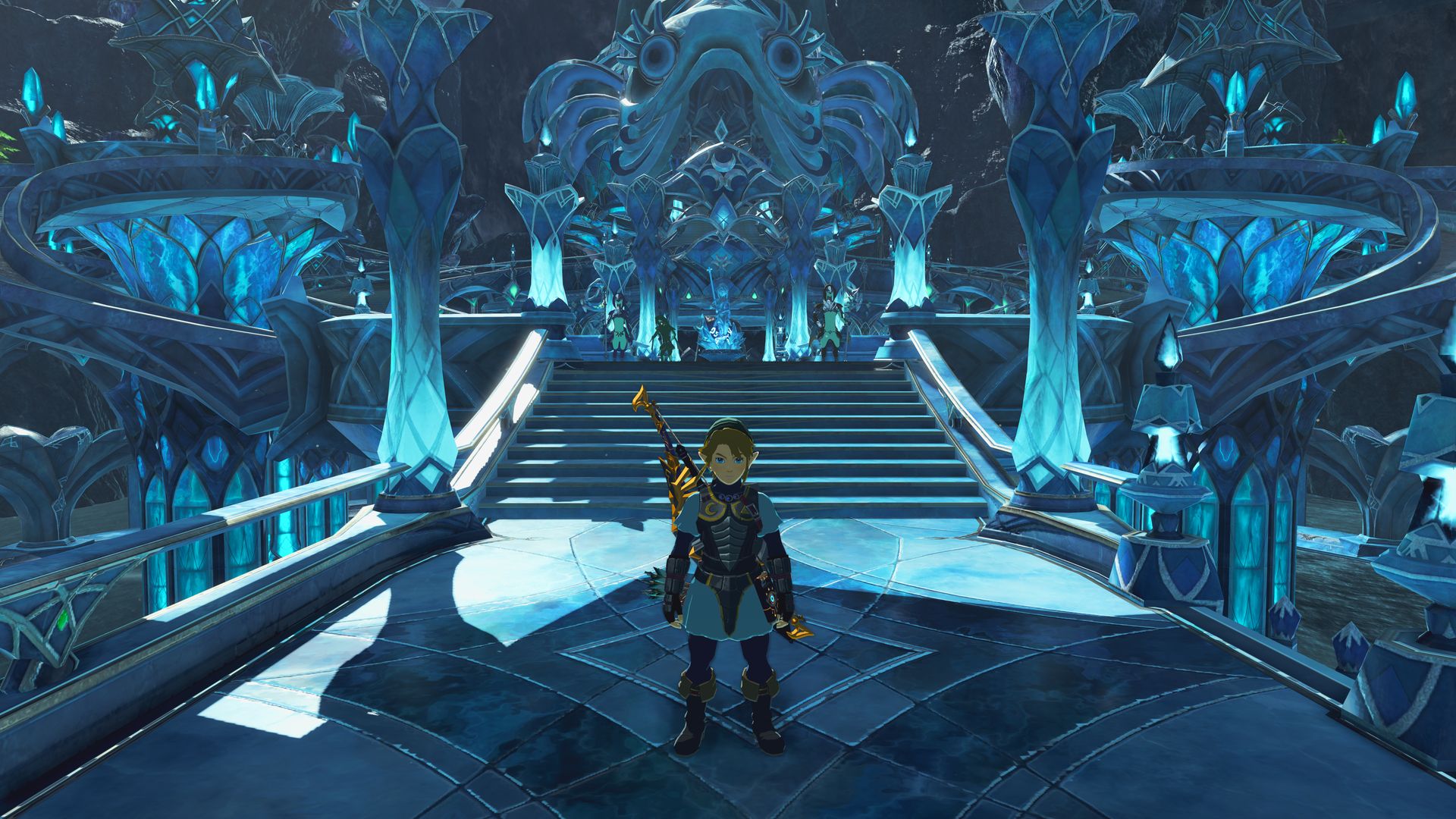

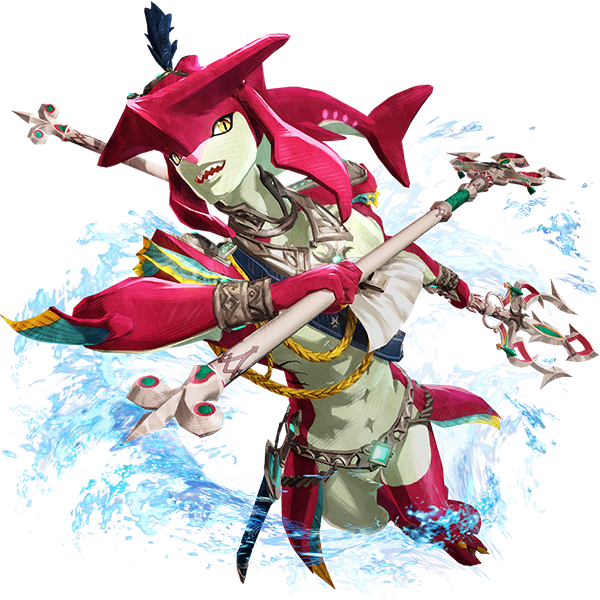
Zora
The fish-like Zora are an amphibious race of long-lived warriors, sages, and artisans. Keepers of tradition and staunch allies of the Hylian Royal Family, the wise Zora have ruled over the waters of Hyrule for thousands of years.
Water Wardens
The Zora are an aquatic folk who possess fish and amphibian-like traits, including fins, webbed feet and gills. Zoras can come in many shapes and sizes, but are generally humanoids with long tail fins on their heads and finned appendages on their arms and legs. Their skin tone tends to be blue, gray, or red. They range from 5-8 feet tall, but Zoran royalty can often grow much larger. Zoran children mature slowly, staying relatively small until they hit a sudden growth spurt when they near adulthood.
Honorable and Wise
The Zora’s uniquely long lifespan gives them a different perspective on life than the other races of Hyrule. They are methodical thinkers and slow to act, preferring to gather more information before jumping to conclusions. A single King may serve as advisor for a dozen generations of Hylian rulers. Unfortunately, their age can sometimes result in stubbornness, as Zora are slow to adapt to changing times.
Zoras put a great deal of importance on tradition and ceremony. Weddings, births, and deaths are often multi day affairs, filled with celebration and rituals. Outsiders are rarely allowed to participate, and those that do are closely watched to ensure they treat the event with the respect it deserves. To make light of their traditions is often considered a grave insult, and Zoran grudges can last for decades.
Though amphibious, Zora are much more comfortable in the water, and find great joy in swimming through the rivers and seas they call home. Younger Zora are constantly pushing their limits, attempting dangerous aquatic stunts or tracking down vicious monsters to prove their combat prowess. Honor is of great importance to a Zora, and backing down from a challenge is said to put a stain on their reputation that takes years to wash off.
Aquatic Advisors
Because they thrive in both land and sea, Zoran towns and cities are usually built in coastal regions or along large rivers. Control of the waterways makes them key trading partners with many races in Hyrule. This gives them a lot of leverage in diplomatic negotiations, which they use to secure the safety and prosperity of their people.
While Zora tend to place themselves first, they recognize their role in guiding the nation of Hyrule to a better future. The Zoran have always offered their services to the Hylian royal family, honorbound by the oaths of their ancestors. Women of the Zora royalty are often given important roles as sages, guarding ancient aquatic artifacts or holy sites from dangerous foes.
Zora are uncomfortable spending too much time away from the water, so they rarely venture far from home. As such, their interaction with other races is somewhat limited. Visiting a Zora settlement is considered a big responsibility, as your first impression speaks not only for yourself, but for your entire people.
Fish out of Water
Zora adventurers are quite rare, as roaming the dry land is seen as unpleasant and foolish. Yet even the stingiest of elders recognize the need to expand their influence beyond the waterways, and will encourage adventurous Zora to set out and make their mark on the world. If the Hylian royal family is ever in great need, the strongest Zora warriors have no issues venturing into dangerous lands to fulfill their honorbound oath.
Zora Names
Zora names are elegant and simple, using soft consonants and usually having 2 to 3 syllables.
Male: Sidon, Dorephan, Kapson, Trello
Female: Mipha, Ruto, Oren, Laruto
Zora Traits
Zora share the following traits.
Age. Zora mature slowly reach adulthood in around the age of 50, but can live to be a few hundred years old.
Size. Zora come in many variations, standing at a mere 5 feet to a towering 11 feet tall. Your size is medium.
Speed. Your base walking speed is 30 feet.
Darkvision. Accustomed to deep waters, you have superior vision in dark and dim conditions. You can see in dim light within 60 feet of you as if it were bright light, and in darkness as if it were dim light. You can’t discern color in darkness, only shades of gray.
Amphibious. You can breath air and water.
Powerful Swimmer. You have a swimming speed of 40 feet, and you have advantage on all Athletics checks made while swimming.
Zora Weapon Training. You have proficiency in spears, nets, tridents, and shortswords.
Water Magic. You know the shape water cantrip. You can cast the Create or Destroy Water spell once with this trait and regain the ability to do so when you finish a long rest. You can also cast it using spell slots you have of the appropriate level. Wisdom is your spellcasting ability for these spells.
Languages. You can speak, read, and write Zora and Common.
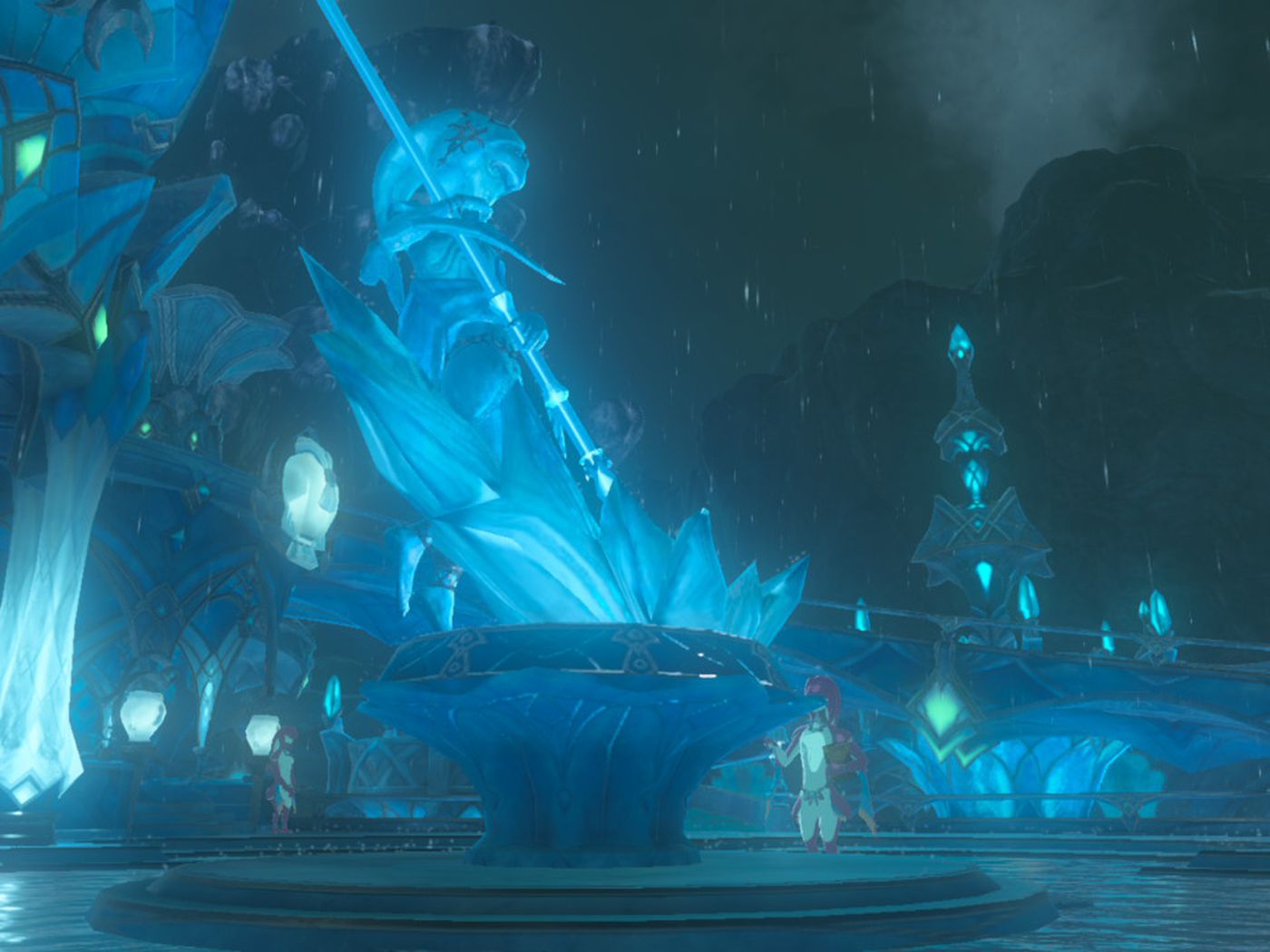


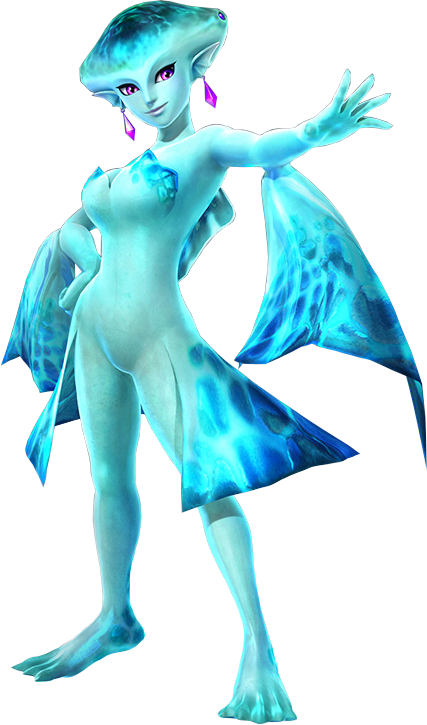
Racial Feats
This section introduces a number of aadditional feats that allow you to further explore your character's race. The DM may decide that some feats are available in your campaign while others aren't.
The feats are presented below in alphabetical order.
Balanced Soul
Prerequisite: Hylian
You've brought the aspects of your spirit into balance, earning the full benefit of Hylia's blessing.
- Increase one of your ability scores by 1.
- You gain all three options from your Divine Blessing trait
- When you use your Touch of Fate feature, you may add an additional 1d6 to the new roll.
Fairy Friendship
Prerequisite: Kokiri
Your bond with your fairy companion has grown, resulting in better coordination and teamwork.
- Your fairy learns the guidance and resistance cantrips. It can only target you with the spells, and it must end its turn within 5 feet of you or it loses concentration on the spell. Wisdom is its spellcasting ability for these spells.
- Your fairy can add your proficiency bonus to the DC of its Analyze feature.
- After successfully analysing a creature, your fairy marks them with a faint glimmering light until the start of your fairy’s next turn. Your next attack roll made against this glowing target has advantage.
Guardian Magic
Prerequisite: Sheikah
You are trained in detecting and guarding against hidden threats. You learn the detect magic spell, and can cast it at will without expending a spell slot. You also learn see invisibility and dispel magic, and can cast each of them once without expending a spell slot. You regain the ability to cast these spells in this way when you finish a long rest. Intelligence is your spellcasting modifier for these spells.
Interloper Magic
Prerequisite: Twili
You unlocked some of the darker ancestral magic buried deep within you.
- When you cast Darkness with your Twili Magic trait, you can see through the darkness created by the spell.
- You learn Silence and Summon Shadowspawn, each of which you can cast once without expending a spell slot. You regain the ability to cast these spells in this way when you finish a long rest.Your choice of Intelligence or Charisma is your spellcasting ability for these spells.
Mountain's Might
Prerequisite: Goron
Your power as a Goron is unmatched.
- Your Strength or Constitution is increased by 1
- Your unarmed strikes can deal bludgeoning damage equal to 1d6 + your Strength modifier.
- Once per turn, when you hit a creature with an unarmed strike, you may push it up to 10 feet away from you.
Shrub Fighter
Prerequisite: Deku Scrub
You can root yourself into the ground to improve your defenses and better hide from enemies.
- Increase your Dexterity or Constitution by 1.
- While standing on an area of sand, earth, mud, or snow, you can spend your bonus action to root yourself into the ground. While rooted, you can’t move or be pushed or pulled, but you have half cover. You can uproot yourself again as a bonus action.
- While you are rooted and take the Hide action, you become indistinguishable from a regular bush until you move or take an action or reaction.
Storm's Fury
Prerequisite: Gerudo
You've wield the destructive power of the desert storm.
- Increase your Strength, Dexterity, or Charisma by 1.
- You are resistant to Lightning damage.
- When you use your Fury of the Sands feature, you may have lightning erupt from your target. Creatures of your choice within 15 feet of the target take additional lightning damage equal to your proficiency bonus. A creature that takes lightning damage in this way cannot take reactions until the start of its next turn.
Wind Mastery
Prerequisite: Rito
You’ve mastered the art of creating updrafts, gaining impressive control over the air around you.
- Your Dexterity, Wisdom, or Charisma is increased by 1.
- You may use your Updraft feature as an action without expending any uses of it.
- You learn the gust cantrip, and can cast it as a bonus action. Its spellcasting ability is the ability increased by this feat.
Zora Healing
Prerequisite: Zora
You’ve tapped into the natural restorative powers of the water, allowing you to mend wounds.
- Your Constitution or Wisdom is increased by 1.
- Over the course of a short rest, you may tend to the wounds of one creature. That creature regains 2 extra hit points per Hit Die spent during the short rest.
- As a bonus action, you may touch a willing creature and infuse it with healing waters. The creature is healed for an amount equal to twice your level. Once you use this feature, you can’t use it again until you finish a long rest.
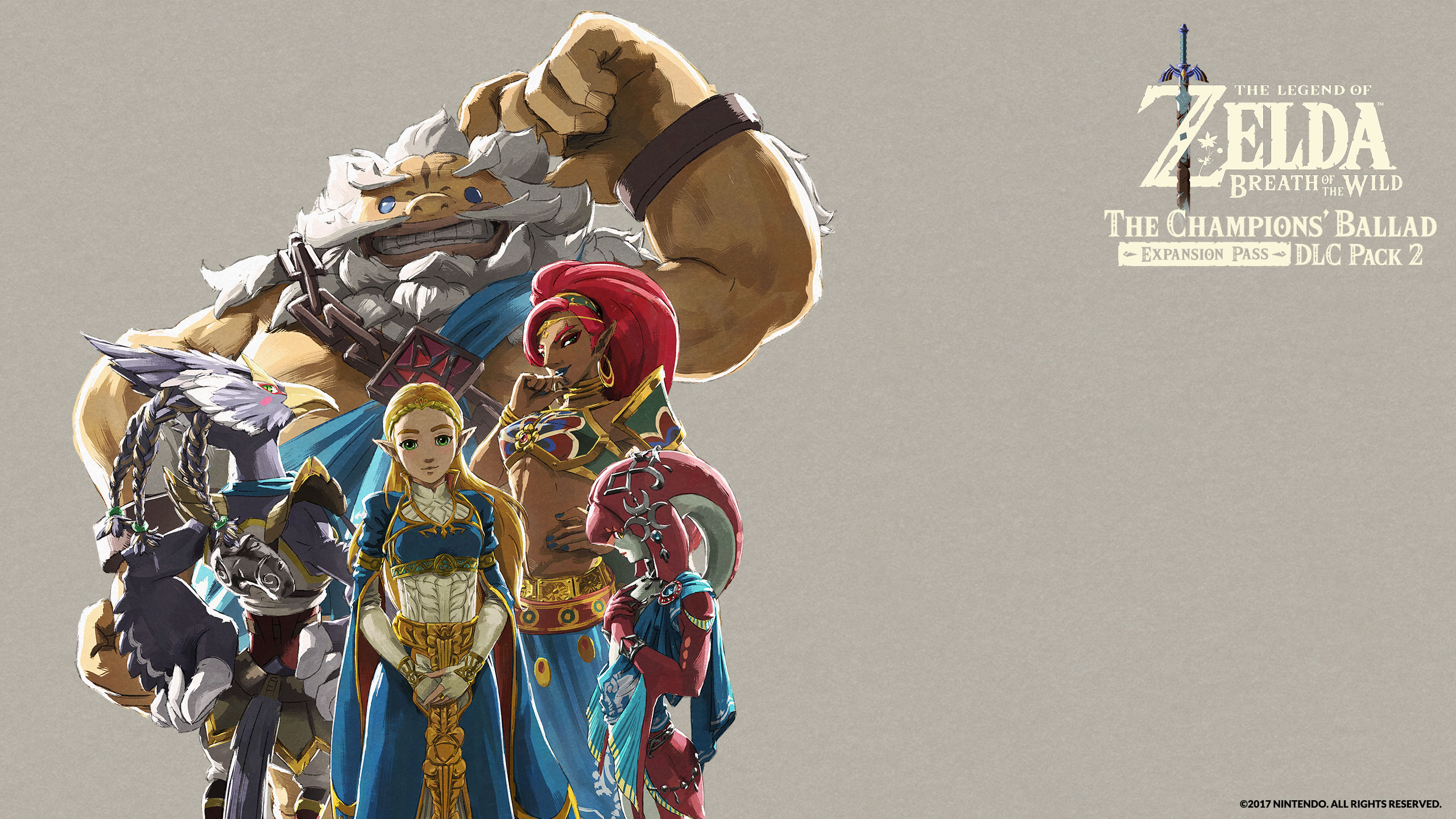

Special Thanks
This document is a work in progress. Feel free to send feedback or requests on Reddit to u/Aethelwolf.
All fan content is intended for personal use only and is based on The Legend of Zelda series and Dungeons of Dragons 5th edition. Intellectual properties, including races, characters, and locations, are the sole property of Nintendo Company.
All images found in this document are screenshots or official artwork from games in the Legend of Zelda series and are owned by Nintendo.